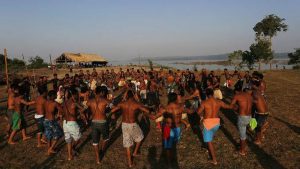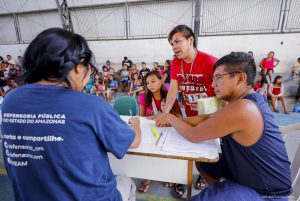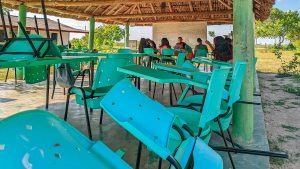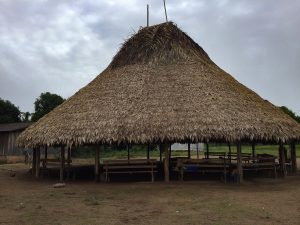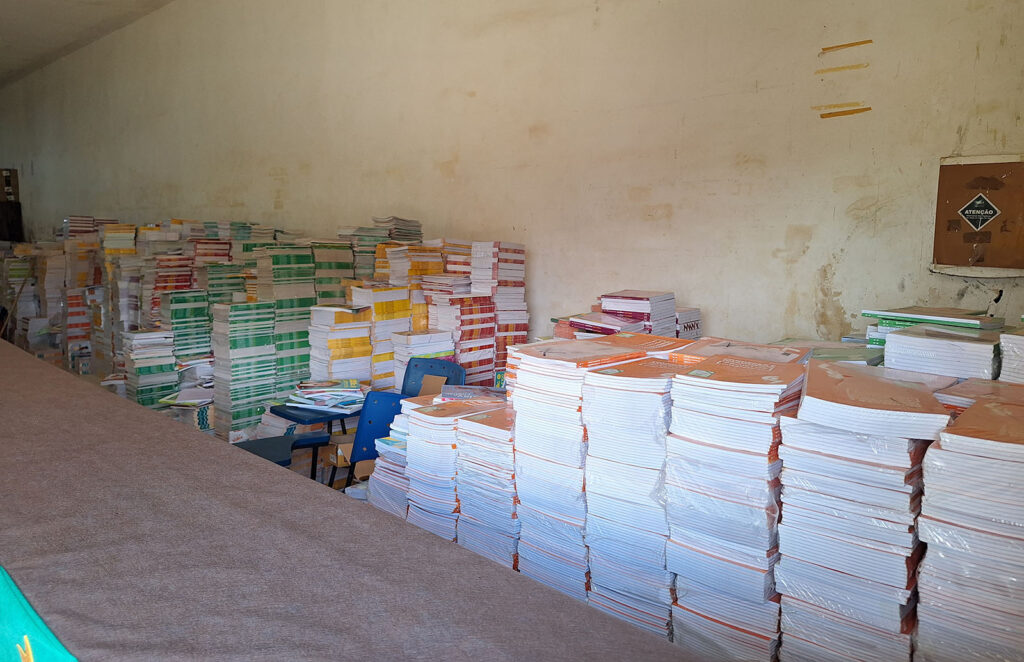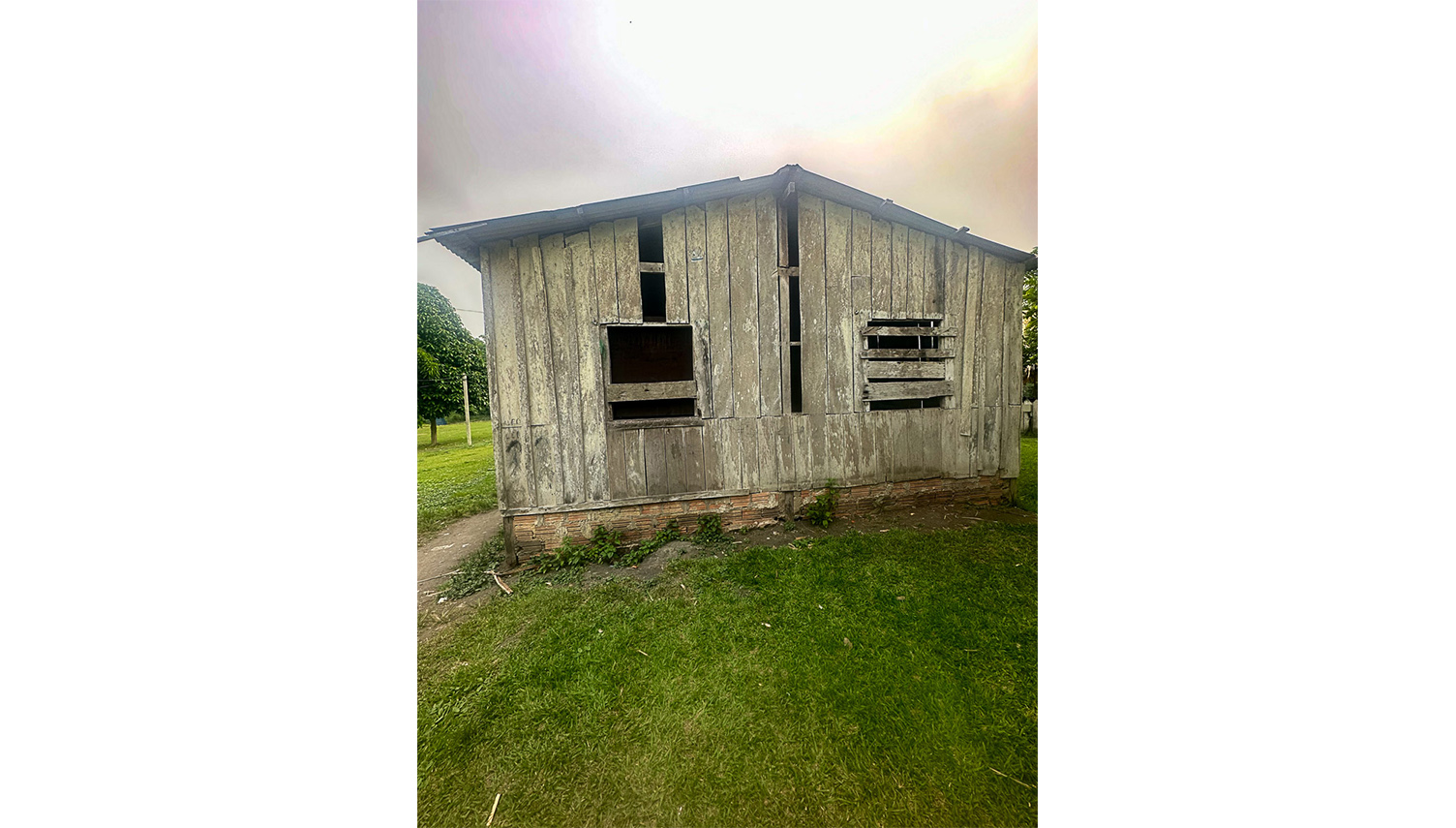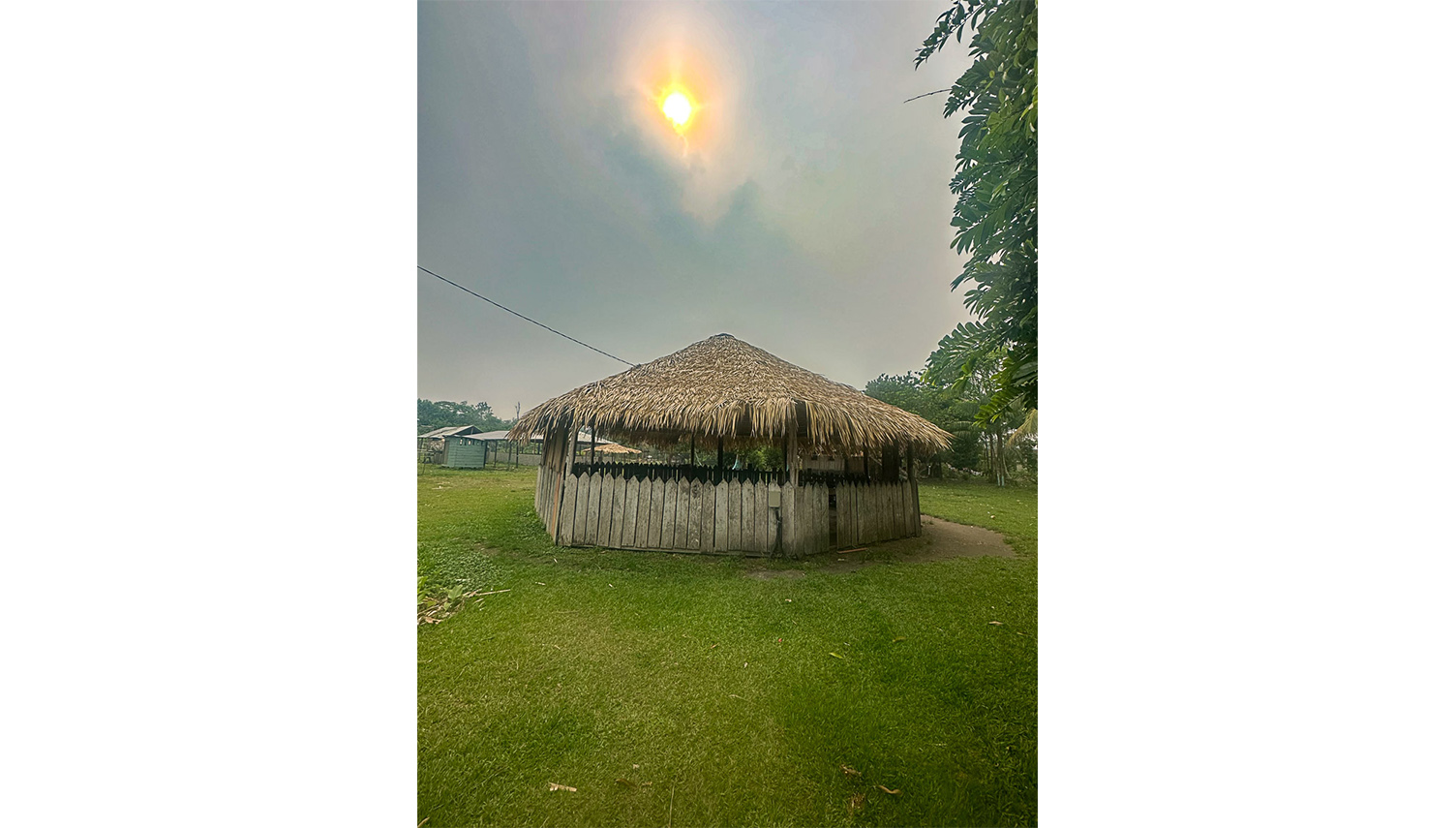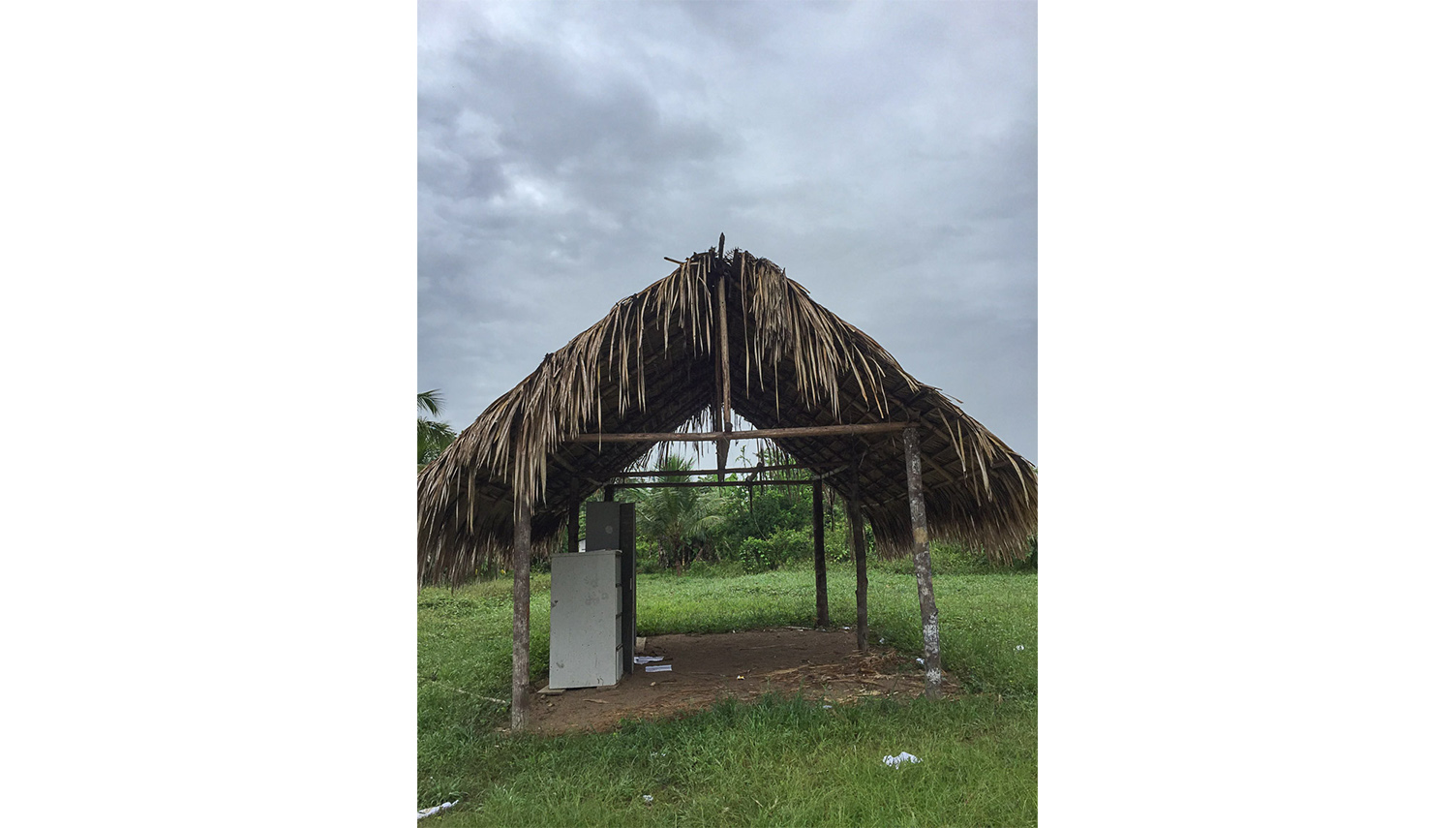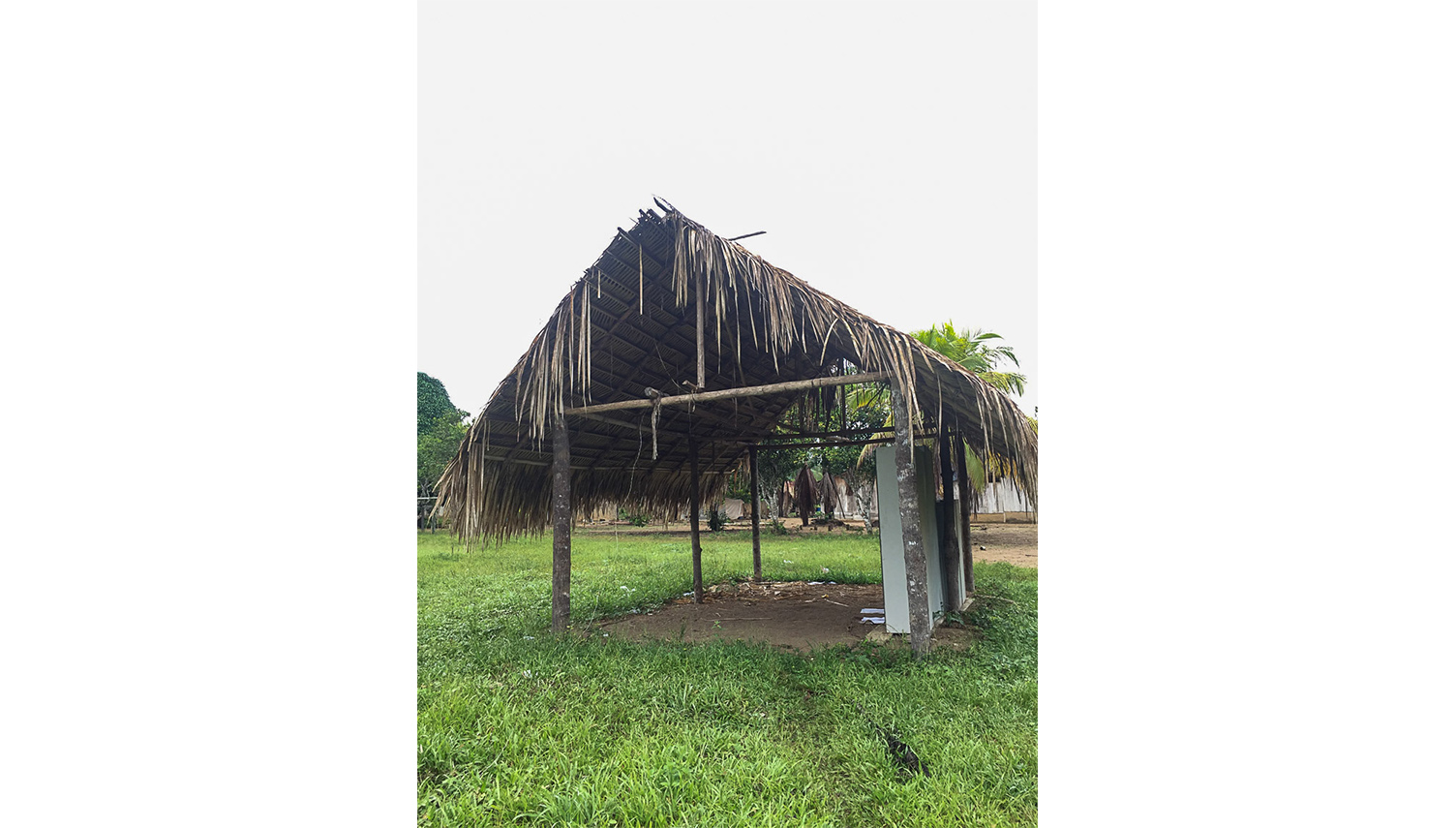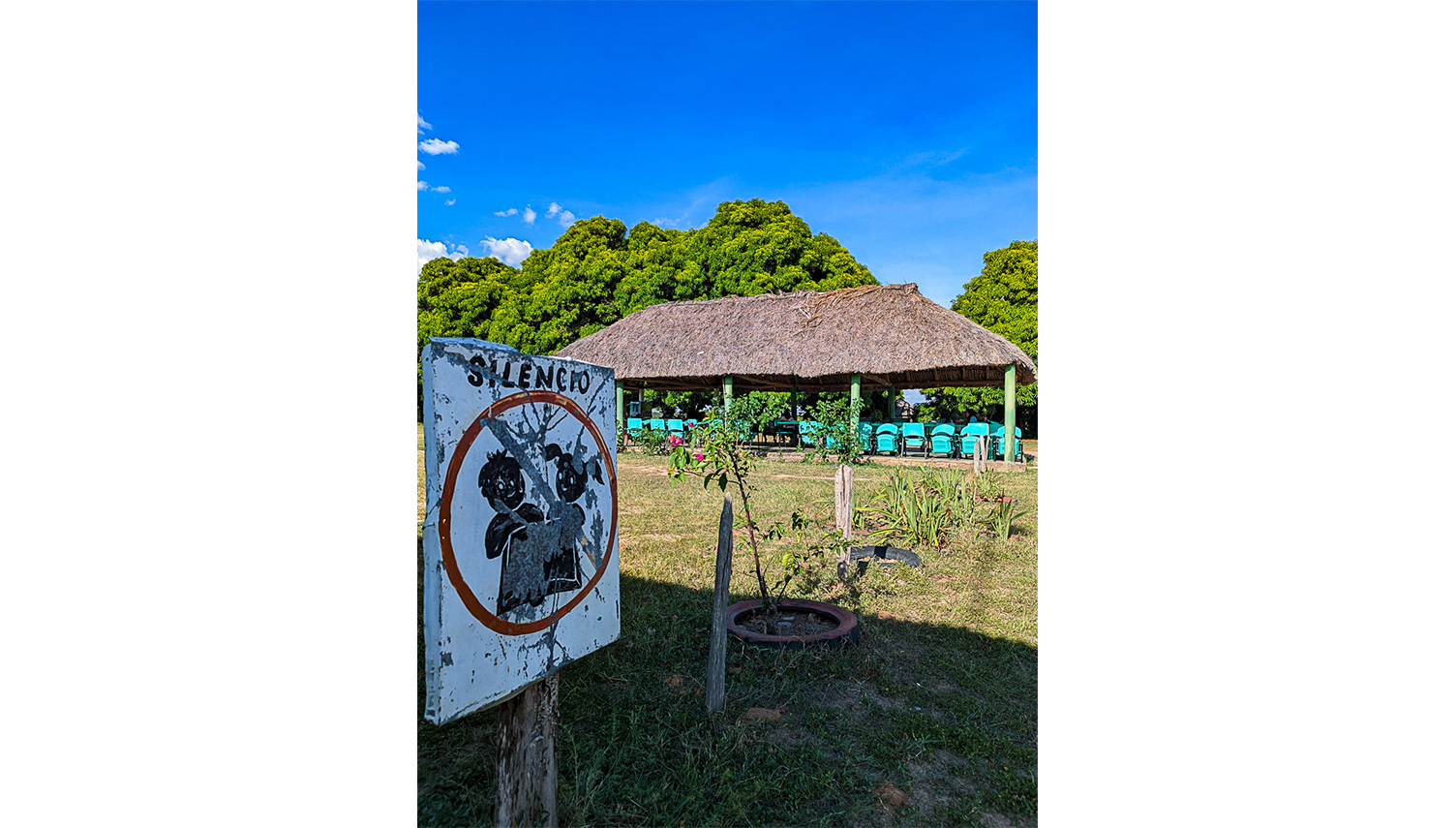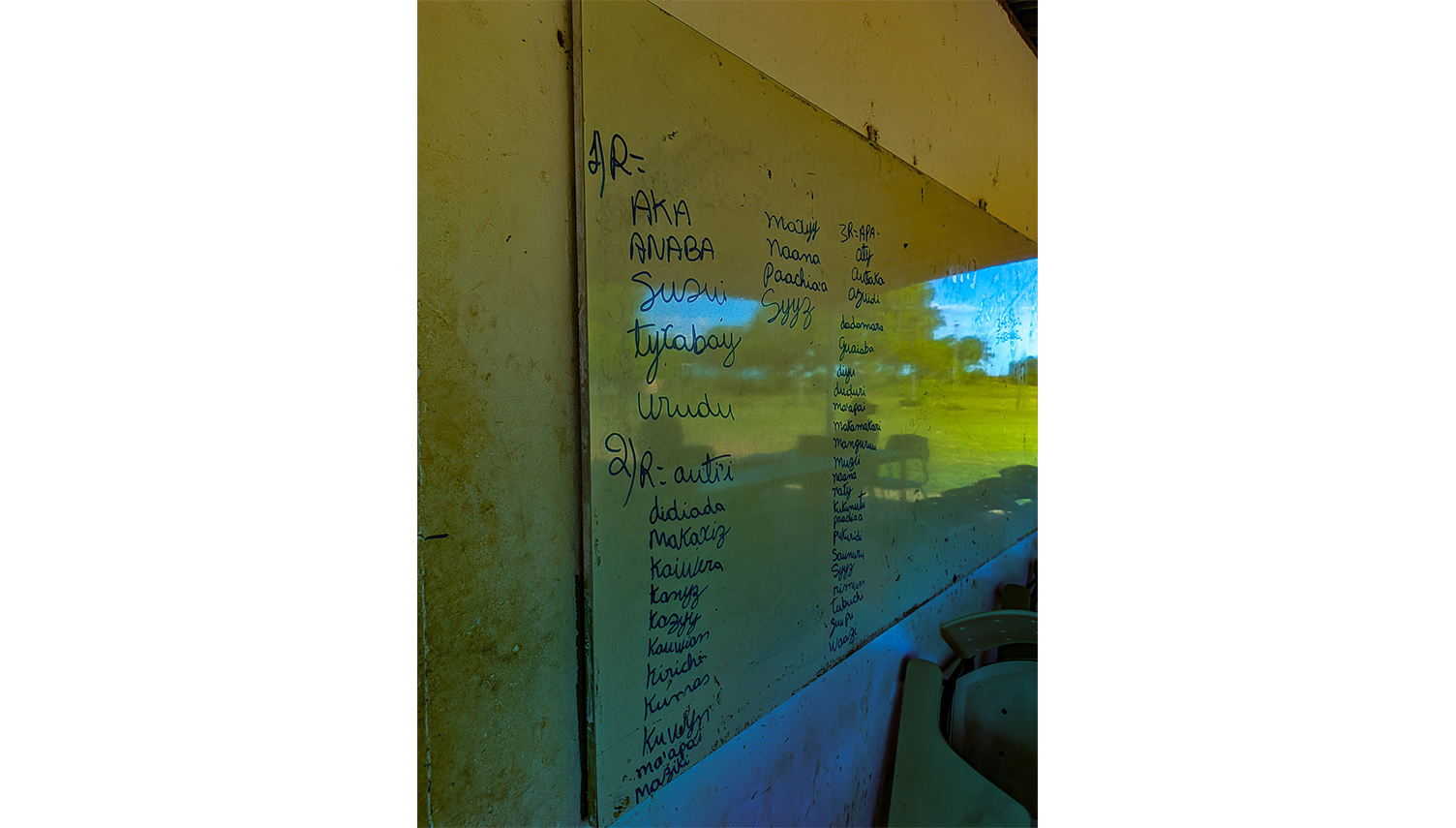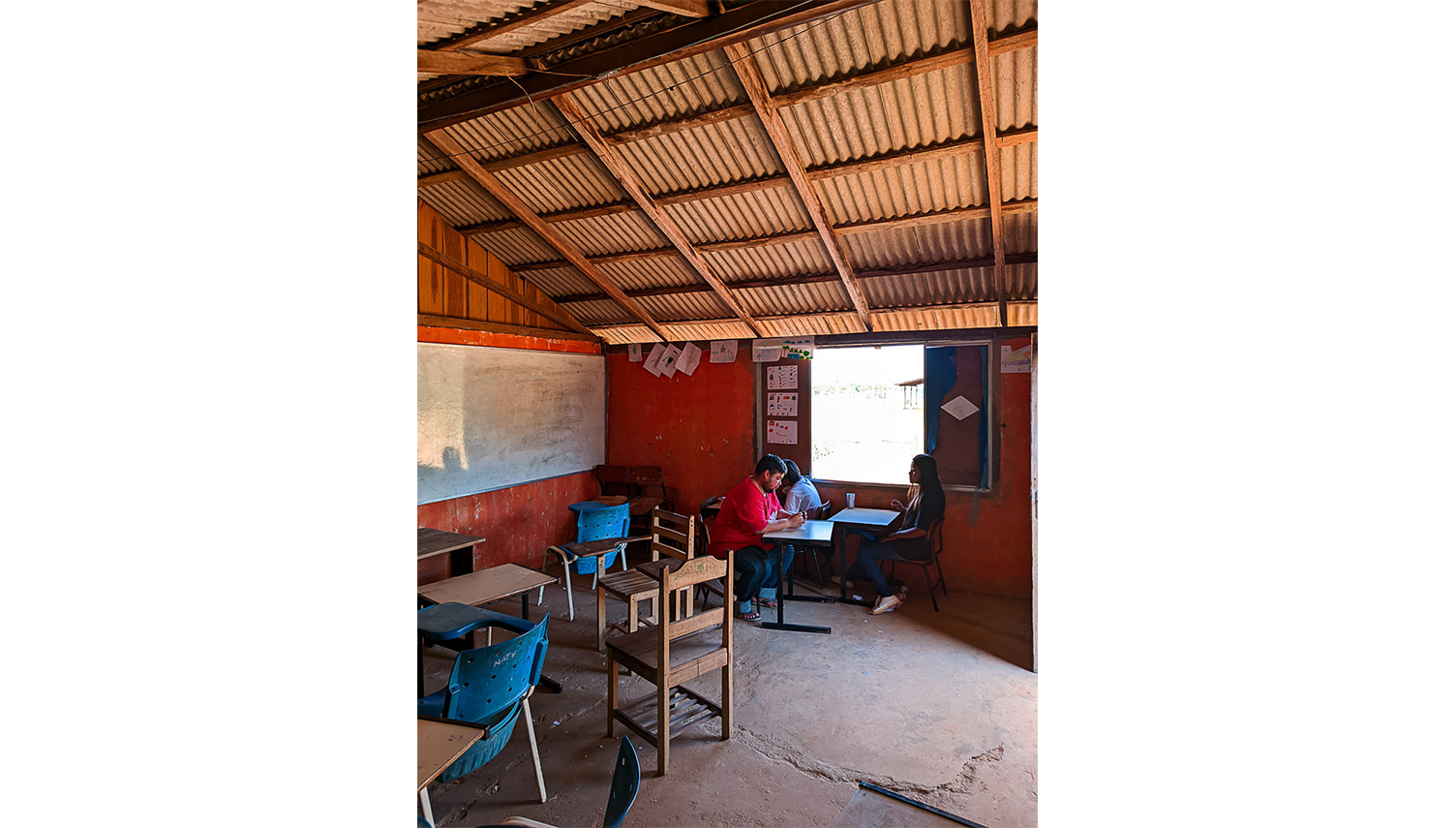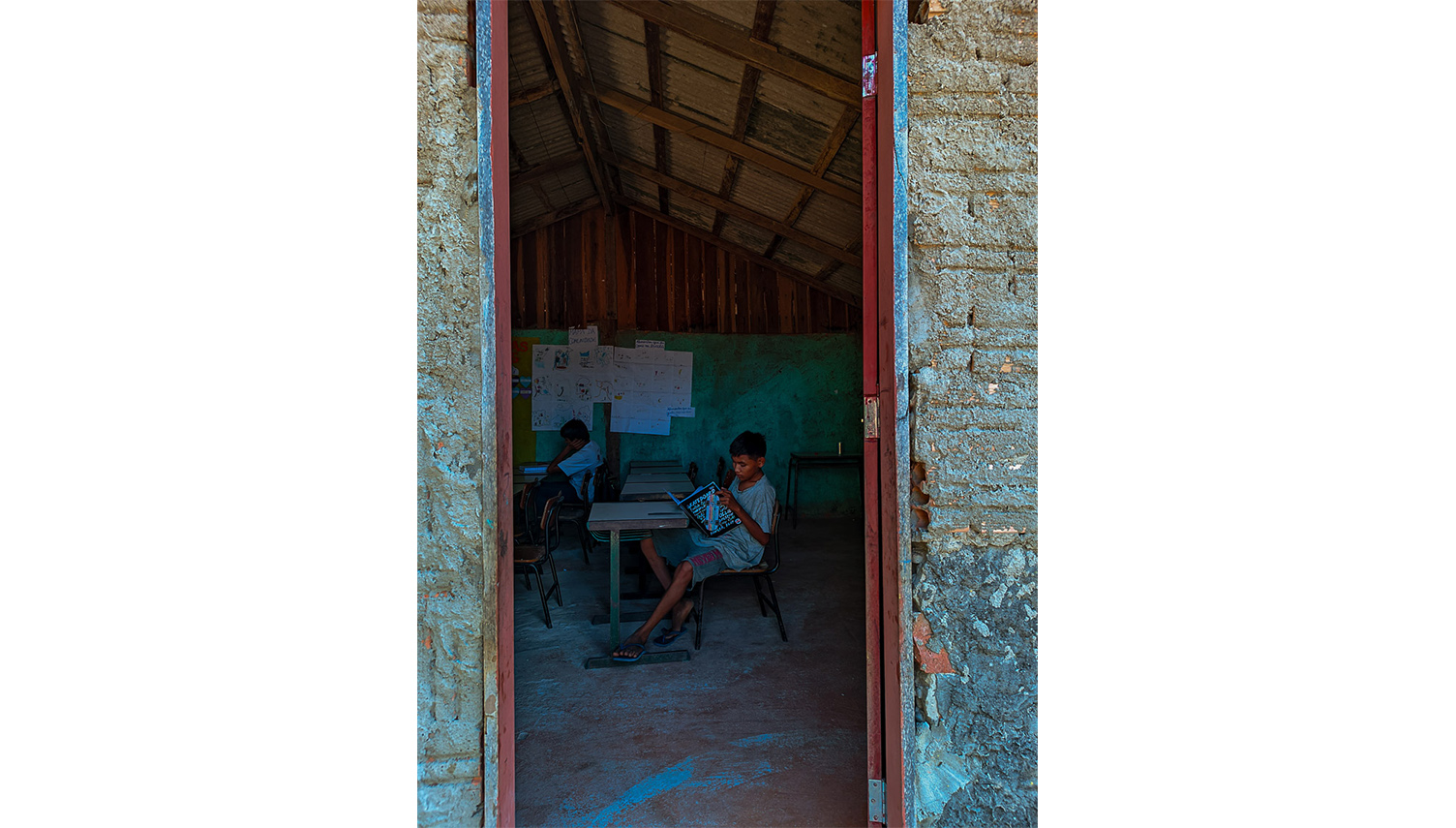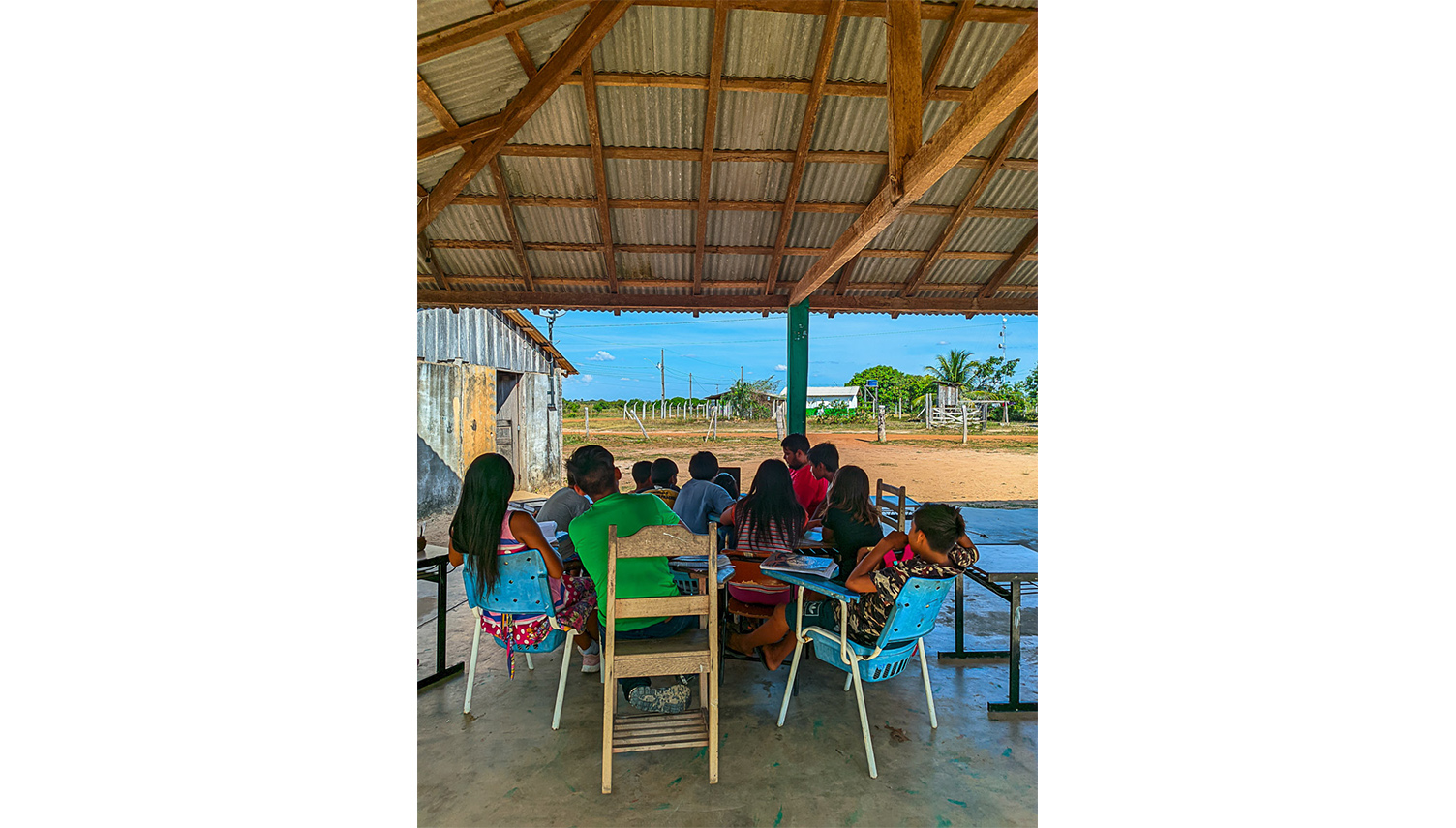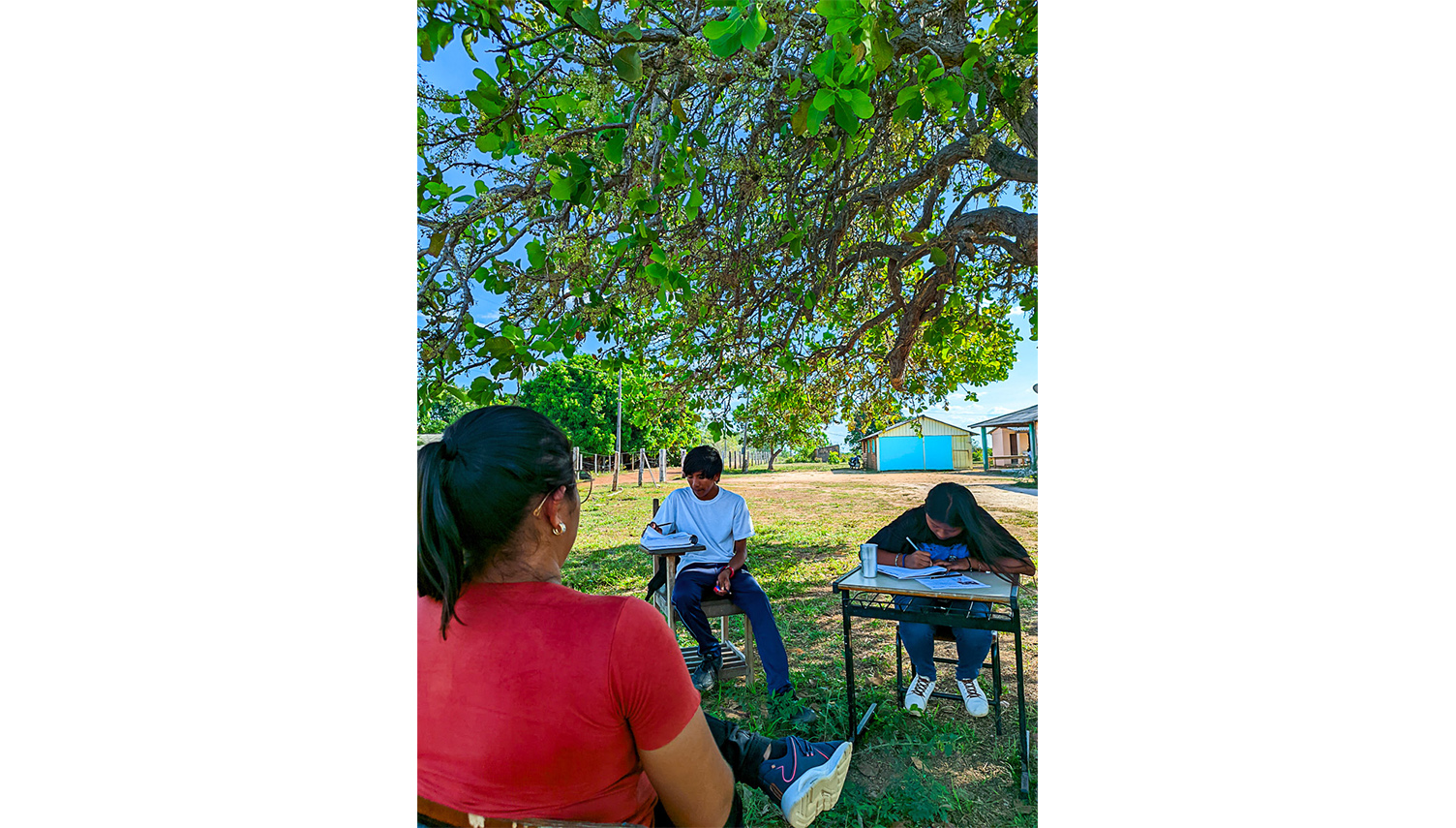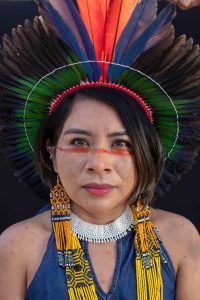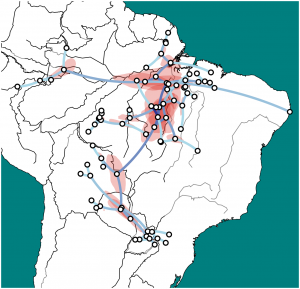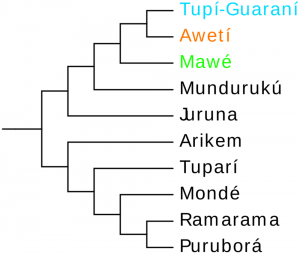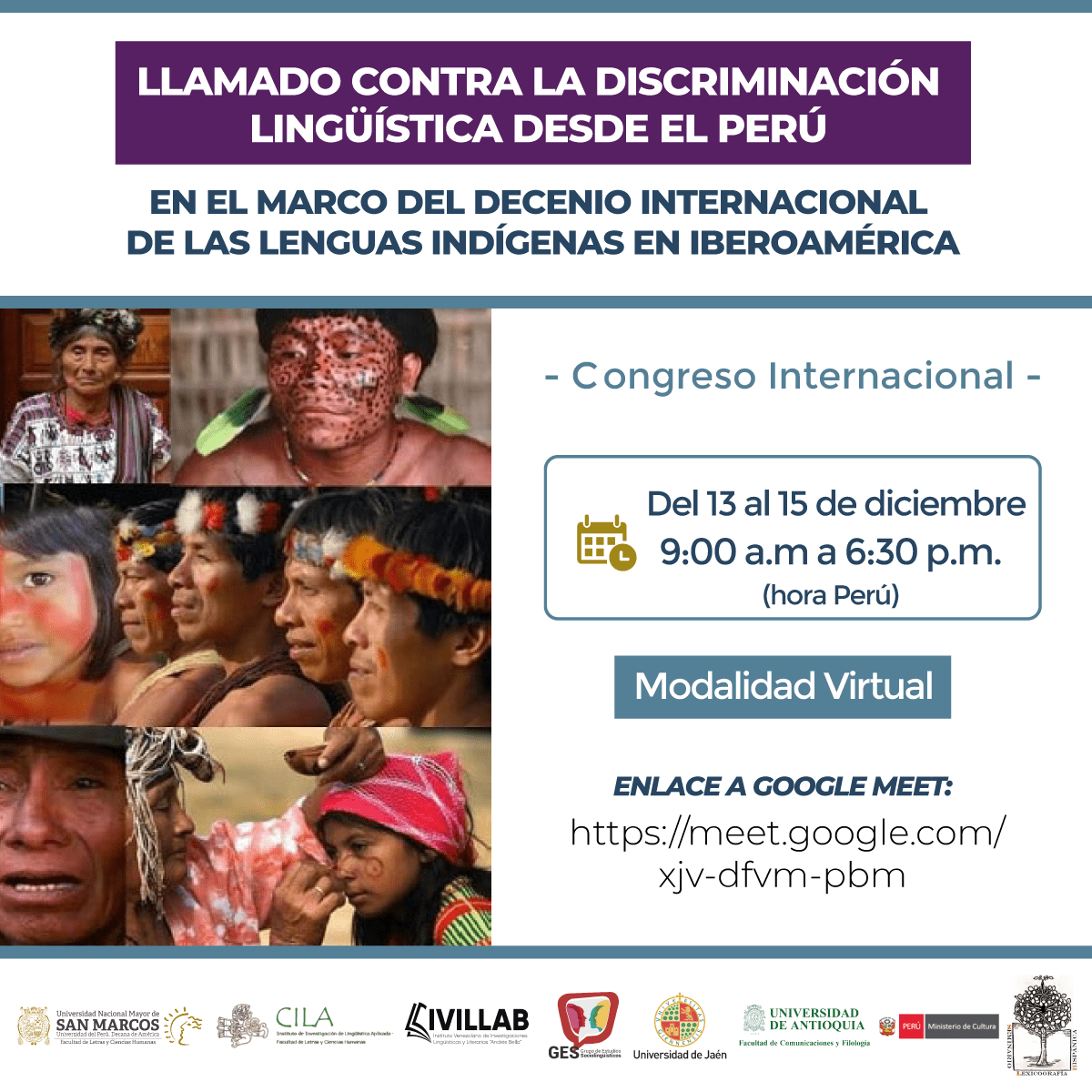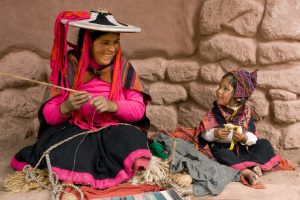Pesquisa da Ufopa sobre terras indígenas é aprovada na Chamada Universal do CNPq para 2024
Em 1 de Dezembro de 2023
Ação investigará os processos de luta por territórios indígenas em Santarém (PA), Dourados (MS) e Maquiné (RS).
O projeto de pesquisa “Análise comparativa das práticas espaciais de autodemarcação, retomada e monitoramento territorial de Terras Indígenas”, coordenado pelo pesquisador Rafael Zilio Fernandes, professor da Universidade Federal do Oeste do Pará (Ufopa), foi aprovado na Chamada Universal do CNPq nº 10/2023, que tem o objetivo de apoiar projetos de pesquisa que visem a contribuir significativamente para o desenvolvimento científico e tecnológico e a inovação do país.
Com duração prevista de dois anos (2024-2025), a pesquisa investigará os processos de luta por territórios indígenas em Santarém (PA), Dourados (MS) e Maquiné (RS), e terá como base o laboratório do Núcleo de Pesquisas sobre Espaço, Política e Emancipação Social (Nepes) do Instituto de Ciências da Educação (Iced). O projeto também envolve pesquisadores de outras três instituições: Universidade Federal da Grande Dourados (UFGD), Universidade Federal do Rio Grande do Sul (UFRGS) e Universidade do Estado do Pará (UEPA), todos da área de Geografia.
“É uma oportunidade ímpar a Ufopa ser a unidade executora de um projeto financiado pelo CNPq envolvendo povos originários em escala nacional, dado o contexto de alterações climáticas, eventos extremos e devastação ambiental, onde a demarcação de terras indígenas é um caminho fundamental para o enfrentamento de problemas que afetam toda a sociedade”, afirma Rafael Zilio Fernandes, que é professor do curso de Licenciatura em Geografia da Ufopa.
Confira aqui o resultado final da Chamada Universal do CNPq/MCTI Nº 10/2023.
Leia diretamente na fonte: https://www.ufopa.edu.br/ufopa/comunica/noticias/pesquisa-da-ufopa-sobre-terras-indigenas-e-aprovada-na-chamada-universal-do-cnpq-para-2024/
Saiba mais puxando a Rede:
Prêmio Innovare anuncia os projetos vencedores de sua 20ª edição
O Prêmio Innovare anunciou as práticas vencedoras e homenageadas de sua 20ª edição nesta terça-feira (12/12), no Salão Branco do Supremo Tribunal Federal, em Brasília.
O Innovare teve nove práticas premiadas e seis receberam menção honrosa em um universo de 774 escolhidas para participar do prêmio neste ano. As iniciativas falam de temas como atendimento jurídico a povos indígenas e à população de rua; educação em cultura afrobrasileira; apoio a vítimas de violência doméstica; economia do cuidado; e educação na Polícia Federal.
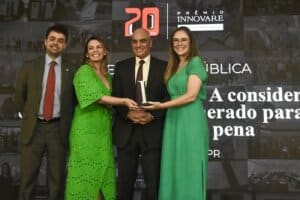
Ministro Alexandre de Moraes posa ao lado das vencedoras na Categoria “Defensoria Pública”
Entre as homenageadas, estão práticas que promovem redes de apoio a pessoas com problemas de saúde mental e a pessoas privadas de liberdade; educação sobre abuso sexual para crianças e professores; missão de observação eleitoral; e um projeto que disponibiliza o acesso a gravações dos interrogatórios feitos pelo Tribunal de Justiça Militar nos tempos da ditadura.
Todas elas vão compor, a partir de janeiro, o Banco de Práticas do Innovare, que tem 9.372 iniciativas cadastradas desde 2004, quando o prêmio foi lançado.
O prêmio destaca as boas iniciativas da área jurídica, idealizadas e colocadas em prática por advogados, defensores, promotores, magistrados e por profissionais interessados em aprimorar a Justiça brasileira, facilitando o acesso da população ao atendimento.
Conheça as práticas premiadas no Prêmio Innovare 2023:
Prêmio Márcio Thomaz Bastos
Poranga Pesika — Por uma Defensoria Intercultural
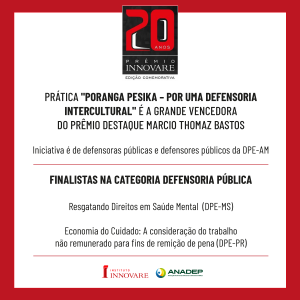 Defensoria Pública do Amazonas
Defensoria Pública do Amazonas
Local: São Gabriel da Cachoeira (AM)
Autores: Isabela do Amaral Sales, Ronaldo Antonio Rafael, Daniele Rosana Prado Arantes, Wildenise Melgueiro das Chagas e Álvaro Socot
Criada da cidade de São Gabriel da Cachoeira, onde 80% da população se autodeclara indígena, a prática possibilita que o atendimento seja feito com apoio de intérpretes e colaboradores falantes das principais línguas indígenas da região. No Alto Rio Negro, noroeste amazônico, vivem mais de 23 povos indígenas de diferentes etnias que falam mais de 20 línguas, três das quais reconhecidas oficialmente: Tukano, Baniwa e Nheengatu (clique aqui para saber mais).
Em Defesa da Democracia e da Justiça no Brasil
Comissão Arns
Local: São Paulo
Autores: André Feitosa Alcântara e José Carlos Dias
A Comissão Arns é uma organização da sociedade civil formada em 2019 por juristas, intelectuais, jornalistas, ativistas e voluntários na defesa dos direitos humanos. Participa intensamente de articulações internacionais para denunciar atos autoritários do governo brasileiro e garantir a democracia com o respeito às instituições do sistema de justiça e as eleições. O grupo atua de forma voluntária e suprapartidária, em rede com milhares de defensores de direitos humanos de todo o país. É uma das articuladoras do Pacto Pela Vida e Pelo Brasil, ao lado de CNBB, OAB, ABI, SBPC e ABC (clique aquipara saber mais).
Categoria CNJ — LGBTFobia não é opinião, é crime!
Tribunal de Justiça do Maranhão (TJ-MA)
Local: São Luiz
Autores: Marco Adriano Ramos Fonseca, em coautoria com Elaile Silva Carvalho, Adriana Da Silva Chaves e os membros do comitê Luciano Lopes Vilar, Marcelo Ricardo Cordeiro Cardoso, Joseane Cantanhede dos Santos e Joelma Regina do Nascimento
A prática, implantada em 2020, promove a articulação de parceiros institucionais para criar e disseminar campanha para combater a LGBTFobia, mediante estratégias de sensibilização e conscientização da sociedade. Além disso, a prática também promove a otimização do acesso do público LGBTQIA+ à Justiça. A campanha hoje atende a todo o estado do Maranhão, distribuída em 107 comarcas e 217 municípios (clique aqui para saber mais).
Categoria Tribunal — Programa POP Rua Justiça Federal 3ª Região
Tribunal Regional Federal da 3ª Região
Local: São Paulo
Autora: Marisa Claudia Gonçalves Cucio
O Programa POP Rua JUD assegura às pessoas em situação de rua amplo acesso à Justiça e a demais serviços públicos relacionados, mediante parcerias com órgãos públicos e instituições privadas de cunho social. Além do atendimento assistencial e de saúde, há expedição de documentos e atendimento jurídico por instituições parceiras, além da garantia de acesso à Justiça para ações e procedimentos, principalmente assistenciais e previdenciários. Atualmente o programa atende também a zonas periféricas e rurais de difícil acesso (clique aqui para saber mais).
Categoria Juiz — Somos Marias
Local: Peruíbe (SP)
Autores: Danielle Camara Takahashi Cosentino Grandinetti, em parceria com Orlando Brunetti Barchini e Santos e a ONG Humanitas360
A prática promove um atendimento menos burocrático para mulheres vítimas de violência doméstica, em um ambiente em separado, onde funciona o cartório da vara (anexo ao Fórum de Peruíbe). Lá, as vítimas podem receber atendimento jurídico e psicológico, fazer cursos e confeccionar artesanato para vender e ter alguma renda. A prática também promove a conscientização dos agressores, que passam por um curso para aprenderem a trabalhar suas emoções (clique aqui para saber mais).
Categoria Ministério Público — Projeto Ilé-Iwé
Ministério Público do Estado de Sergipe
Local: Aracaju
Autor: Luis Fausto Dias de Valois Santos
Oferta formação continuada a coordenadores pedagógicos e professores das escolas das redes municipais de ensino de Aracaju, São Cristóvão e Nossa Senhora do Socorro para estimular a cultura negra nas escolas e promover o debate sobre movimentos negos e das comunidades de terreiro. O projeto também abrange escolas da rede estadual de Sergipe e visa a integrar o sistema de Justiça com o sistema público de ensino, trazendo para essas instituições arte, história, dança folclore, orquestras de atabaques, maracatu, culinária e outros diversos elementos que mostram a contribuição do povo negro na cultura, arte e sociedade brasileiras. A palavra Ilé-Iwé significa “escola” em iorubá (clique aqui para saber mais).
Categoria Defensoria Pública — Economia do Cuidado: A consideração do trabalho não remunerado para fins de remição de pena
Defensoria Pública do Estado do Paraná
Local: Guarapuava (PR)
Autoras: Mariela Reis Bueno, Nilva Maria Rufatto Sell
Promove o reconhecimento do trabalho doméstico e materno, contra a invisibilização das funções historicamente atribuídas às mulheres. A possibilidade de remição de pena pelo trabalho doméstico, em especial para as mulheres monitoradas, poderá reduzir em até 30% o tempo de cumprimento de pena remanescente, além de contribuir com a redução de custos para o Estado (com os equipamentos, pessoas para sua operacionalização, eventual custo com regressão de regime para o sistema fechado, entre outros) (clique aqui para saber mais).
Categoria Advocacia — Acesso à Justiça para Povos Indígenas que Vivem em Isolamento
Local: Santarém (PA)
Autoras: Carolina Ribeiro Santana, Patricia Borba, Kri Guajajara (Maria Judite Baleeiro) e Catarina Ramos
A prática “Acesso à Justiça para povos indígenas que vivem em isolamento” é um braço do Observatório dos Direitos Humanos dos Povos Indígenas Isolados e de Recente Contato (OPI). O Observatório é formado por um grupo de indígenas e indigenistas que, juntos, buscam garantir que os direitos dos povos indígenas que vivem em isolamento e em recente contato sejam mantidos e, mais que isso, efetivados. A iniciativa de instituir uma estratégia jurídica no Opi foi de Bruno Pereira, assassinado em junho de 2022, com Dom Phillips, no Vale do Javari (AM). Desde que Bruno as convidou, a equipe passou a atuar em prol dos direitos dos indígenas que fazem parte dessa minoria extremamente vulnerável em razão de sua opção pelo isolamento e, em virtude de seus usos, costumes e tradições (clique aqui para saber mais).
Categoria Justiça e Cidadania — Especialização em Segurança Pública Contemporânea
Polícia Federal
Local: Brasília
Autores: Luciana do Amaral Alonso Martins, Rodrigo de Souza Carvalho, Márcio Alberto Gomes Silva e Gilson Matilde Diana
Tem como objetivo capacitar policiais federais aptos à progressão para Classe Especial acerca de temas contemporâneos que norteiam o trabalho policial e seus impactos em questões democráticas e sociais. Visa a atender as complexidades da prevenção e do enfrentamento ao crime organizado, corrupção, terrorismo e demais crimes graves, utilizando tecnologia, métodos e processos aperfeiçoados (clique aqui para saber mais).
Leia a matéria na fonte: https://www.conjur.com.br/2023-dez-12/premio-innovare-anuncia-vencedores-e-homenageados-da-20a-edicao/
Puxando a rede do IPOL:
. G1. assista a matéria sobre o prêmio Innovare 23. destaque aos 01min30 com o programa da Defensoria Pública da União (DPU-AM) que garante tradutores indígenas no atendimento e aos 03min15m um projeto que combate o racismo nas escolas em Sergipe.
https://g1.globo.com/jornal-nacional/playlist/jornal-nacional-ultimos-videos.ghtml#video-12190309-id
. DPAM ganha Prêmio Destaque por trabalho com indígenas do Alto Rio Negro – 19/10/2023
. DEFENSORIA DO AM VENCE PRÊMIO MÁRCIO TOMÁZ BASTOS, CATEGORIA DESTAQUE DO INNOVARE
. DEFENSORIA CONQUISTA PRÊMIO INNOVARE 2023 COM PROJETO QUE UTILIZA INTÉRPRETES INDÍGENAS NO ATENDIMENTO
. “CARTÓRIOS DÃO VISIBILIDADE DOCUMENTAL A PESSOAS QUE NÃO EXISTEM FORMALMENTE”, AFIRMA DEFENSORA PÚBLICA
. POLO DO ALTO RIO NEGRO COMEMORA A MARCA DE 8,6 MIL ATENDIMENTOS NA REGIÃO
. Capítulo 13 – MANUAL DE ATENDIMENTO JURÍDICO A MIGRANTES E REFUGIADOS MIGRANTES INDÍGENAS: PRINCIPAIS DEMANDAS, PARTICULARIDADES E DIFICULDADES
https://direitoshumanos.dpu.def.br/wp-content/uploads/2022/05/Manual_CapÃ_tulo-13_compressed.pdf
Ensino indígena pós-covid – Que os governantes olhe para educação indígena, a realidade é alarmante. Por Ariene Susui – Agência Amazônia Real
O ano era 2020 e o mundo já enfrentava o caos da pandemia de Covid-19. Um dos maiores desafios globais foi o de preservar o ensino, mesmo que à distância. Nas comunidades indígenas, onde lideranças morreram sem socorro médico, a educação foi deixada de lado pelas autoridades. Sem recursos ou condições tecnológicas, muitas aulas deixaram de ser ministradas. As escolas não tinham acesso à internet e muitas estavam em estado precário. Para produzir um retrato educacional nas aldeias, a reportagem ouviu professoras e lideranças indígenas de quatro Estados da Amazônia brasileira. Três anos se passaram e a pandemia ainda se faz presente. Não mais pelo vírus letal, mas pela flagrante carência de infraestrutura e por problemas de saúde mental que os alunos carregam até hoje.
Boa Vista (RR) – A ferida, na verdade, já estava aberta: a pandemia do novo coronavírus apenas inflamou os persistentes problemas da educação escolar indígena. Os alunos apresentam, hoje, deficiência de leitura e escrita, o processo de alfabetização foi fragilizado e os professores adoeceram. Sobram relatos de depressão. “Vai demorar muito tempo, coisa de 8 a 10 anos, e ainda assim não iremos conseguir recuperar o que a pandemia causou na educação e nas comunidades indígenas”, arrisca Rosivânia Demétrio, que até setembro era coordenadora da Organização dos Professores Indígenas de Roraima (Opirr).
Durante os longos meses de pandemia, não houve assistência por parte dos governos em relação à questão psicológica do aluno, do professor e da própria educação indígena. Mas não só. A precariedade das escolas indígenas, a falta de estrutura, onde faltam materiais, prédios adequados e merenda de qualidade, foram ainda mais expostos. E tudo continua da mesma forma.
No final de 2020, bem no meio da pandemia, estive na comunidade Catual, na Terra Indígena (TI) Trombetas Mapuera, no município de Caroebe (RR). A convite da comunidade, decidi me deslocar até lá por conta própria. Para chegar até o povo Wai Wai, foi uma longa viagem de dois dias, incluindo ônibus, um carro fretado e três horas de barco. Ali, presenciei as dificuldades de uma das centenas de escolas de difícil acesso da Amazônia. Ninguém chega até esse território se não for pela via fluvial. Os relatos ouvidos naquela viagem acabaram me acompanhando por todos esses anos.
Não havia aulas. As lideranças me levaram até uma sala de aula, que estava vazia de alunos, por conta da pandemia. Perguntei se outras escolas da região também estavam nessas condições e me confirmaram que enfrentavam a mesma realidade. A situação desde aquele ano não mudou, apesar dos pedidos para a construção de um prédio novo. A escola funcionava em uma estrutura que a própria comunidade criou.
O drama do povo Wai-Wai foi o ponto de partida que me motivou a propor essa investigação sobre a educação indígena no pós-pandemia para a Associação de Jornalistas de Educação (Jeduca). Com a ajuda providencial de comunicadores indígenas da rede da Coordenação das Organizações Indígenas da Amazônia Brasileira (Coiab), Rede Wayuri (da Federação das Organizações Indígenas do Rio Negro) e Wakywai (do Conselho Indígena de Roraima), pude viajar até Roraima e ouvir relatos de lideranças e também professores de outras localidades e Estados.
A educação indígena de Roraima está entre as piores do Brasil. De acordo com os dados da Secretaria de Educação e Desporto do Estado (Seed), há cerca de 2.300 professores indígenas entre os efetivos, da União e do quadro temporário. Já o Censo Escolar da Educação Básica de 2021 indica que havia 247 escolas indígenas. Porém, mais da metade delas não possuem infraestrutura adequada para funcionamento, é o que apontam os dados do Censo Escolar de 2021.
“A maior dificuldade das escolas indígenas é a estrutura que está muito precária. Há escolas que nunca foram construídas e outras que nunca tiveram reforma”, afirma Rosivânia Demétrio, da Opirr. Diante da deficiência ou omissão do poder público, a própria comunidade constrói as escolas. Mas faltam a elas os demais equipamentos – cadeiras, quadros, material didático – e equipe de funcionários, como merendeira, vigia e zelador.
Aula em um barracão
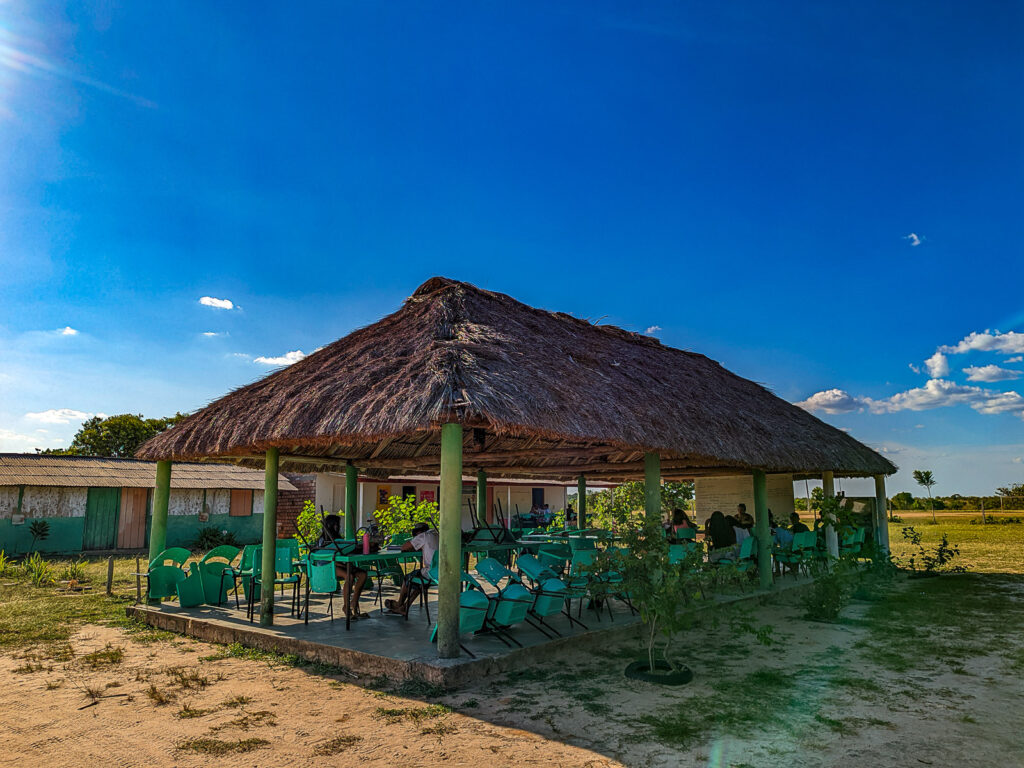
“Os próprios indígenas constroem um barracão bem grande e temos relatos que tem alunos que sentam em bancos improvisados de madeira. Quando chove, acaba molhando as salas de aulas”, descreve Rosivânia. A própria Opirr denunciou o caso junto ao Ministério Público Federal (MPF), mas sem nenhum resultado. “Algumas escolas estão sendo maquiadas, uma pintura ali é só. A maioria delas, principalmente as de difícil acesso, nem isso estão sendo.”
A reportagem procurou o MPF de Roraima para saber se adotou alguma providência em relação à denúncia da coordenadora, por meio da Lei de Acesso à Informação. Mas até a publicação desta reportagem não obteve respostas.
Dário Yanomami, vice-presidente da Hutukara Associação Yanomami (HAY), relata à reportagem sobre o total abandono das escolas indígenas em seu território, já intensamente pressionada pela crise sanitária gerada pelas invasões de garimpeiros. No período pandêmico, como estratégia para escapar da Covid-19, muitos Yanomami fugiram para dentro da floresta, ficando por lá até três meses. Esse foi um dos motivos para a paralisação das aulas, mas que não deveria servir de desculpa para que as unidades de ensino dentro do território continuassem esquecidas – na época e agora.
Na TI Yanomami, há 21 escolas estaduais em funcionamento, cerca de 80 educadores e 1.478 alunos, de acordo com a Seed de Roraima. São números que impressionam, e indicariam a atenção estadual para a educação indígena. Mas isso está longe de ser verdade, afirma Dário Yanomami. “Durante os últimos 15 anos, as escolas Yanomami não tiveram nenhum apoio do governo, não teve sequer uma construção de escola. Os Yanomami fazem suas próprias salas de ensino com palhas e madeiras artesanais.”
O líder indígena menciona que a única coisa que o governo estadual apoiou foi o processo seletivo para professores indígenas. Porém, esses docentes não possuem uma estrutura mínima para oferecer ensino de qualidade. Dário relata que quem compra os materiais, muitas vezes, são os próprios professores – fato que se repete em outras escolas indígenas de Roraima.
Como as escolas estão localizadas em áreas de difícil acesso, só é possível recorrer ao avião para entrar e sair das aldeias Yanomami. Quando querem sacar o salário em uma agência bancária, os professores precisam pedir carona para a Secretaria Especial da Saúde Indígena (Sesai), a própria organização Hutukara ou o Instituto Socioambiental. Já houve casos em que eles se juntaram para pagar a hora de voo de um avião, que custa em média 13.850 reais.
Joênia Wapichana, hoje presidenta da Fundação Nacional para os Povos Indígenas (Funai), afirma que durante seu mandato como deputada federal (2018-2022) destinou 49 milhões de reais em emendas parlamentares para estruturar e apoiar a educação indígena em Roraima. Mas, para isso acontecer, era preciso que o governo do Estado atuasse em conjunto. Segundo Rosivânia Demétrio, parte desses recursos ainda não foi aplicada nas escolas que estão dentro do planejamento para estruturação.
Procurados, a Seed e a chefia de gabinete do governo de Roraima não responderam à reportagem. Deixam, assim, de prestar esclarecimentos sobre o destino das emendas e também de responder por que as escolas indígenas não possuem salas de aulas adequadas, kits escolares, merenda de qualidade.
Defasagem persiste
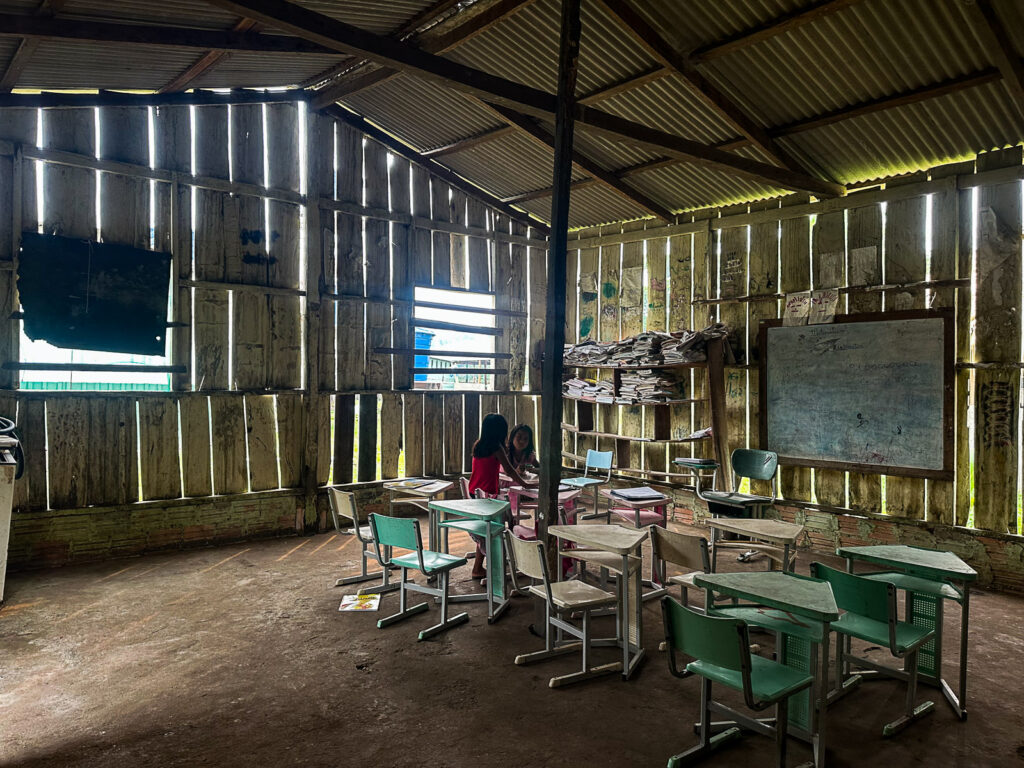
Com a Constituição Federal de 1988, os povos indígenas conquistaram o direito de ter a educação de acordo com suas realidades e dentro de seus territórios. Mas só isso não basta. A realidade dentro das escolas indígenas é vergonhosa, desabafa a professora Aldira Akay, do povo Munduruku, da TI Sawary Ba’ay, em Itaituba (PA).
Nessa TI, nenhuma escola foi construída pelo poder público e a história se repete, fazendo com que a distância entre Roraima e Pará seja apenas geográfica. A Escola Sawary Ba’ay, que possui 43 alunos, foi erguida pela própria aldeia. “Já pressionamos, disseram que iam fazer, mas até agora nem mesmo iniciou”, diz Aldira Akay.
A professora relata que, durante a pandemia, os indígenas foram totalmente abandonados pelo governo estadual e federal. Apenas as organizações não governamentais prestaram alguma ajuda. “Quando a gente ficou doente, nossas crianças ficaram doentes, nós mesmos tivemos que fazer remédio tradicional.” Mas agora, pós-Covid, restaram os problemas de saúde mental que afetam muito as crianças indígenas. Mas não há psicólogos.
Entramos em contato com a Secretaria de Educação do município de Itaituba. Até a publicação desta reportagem, foram feitas duas tentativas de contato e em nenhuma delas houve resposta.
As marcas da Covid-19
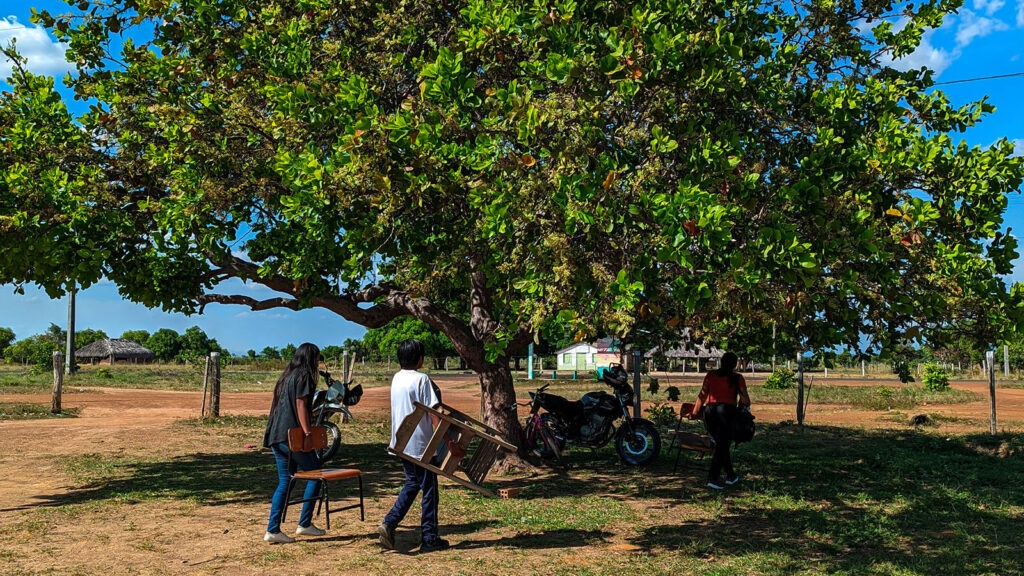
Alunos da Escola Estadual Indígena Tobias Barreto, no município de Amajari, em Roraima carregam cadeiras para aula embaixo de árvore (Foto WEI Tenente).
A psicóloga Iterniza Macuxi atendeu a inúmeros alunos indígenas em Roraima no período pandêmico. Ela pontua que uma das maiores violências que a pandemia causou foi o sofrimento dos indígenas que não conseguiram enterrar os parentes no seu território. “A falta do ritual de passagem (velório) afetou muito a vida dos povos indígenas e, consequentemente, a escola. O sentimento de vazio, de tristeza, de ter alguém partindo, mas de não poder fazer o ritual, que na cultura indígena é importante, foi algo que deixou uma lacuna aberta e que hoje tem pessoas que ainda estão tendo essa dificuldade”, explica.
Iterniza pontua ainda que hoje se depara com relatos de vários adolescentes que apresentam crise de ansiedade, tentativa de suicídio e automutilação. “Quando começaram a retornar às aulas presenciais, os alunos ficaram com muito medo de voltar à escola. Vários alunos e professores foram diagnosticados com síndrome do pânico”, relata a psicóloga, que hoje atua no Distrito Sanitário Especial Indígena (Dsei) Leste, em Roraima.
Professores podem solicitar atendimento psicológico diretamente na Seed de Roraima. Mas Rosivânia Demétrio, da Opirr, menciona que o modelo adotado não consegue atender à realidade dos professores indígenas, por precisarem sair de suas comunidades que muitas das vezes são distantes da capital.
“Para os docentes indígenas terem atendimento, eles têm que vir aqui em Boa Vista agendar atendimento. Agora você imagina, um professor que mora em uma região distante, a mais de 300 quilômetros de distância? Em época de chuva, você não consegue atravessar. Você vem e volta para marcar agendamento, isso já é um gasto, e aí vai ter que retornar naquele dia que o psicólogo marcou. E às vezes você nem é atendido”, explica Rosivânia.
O governo estadual de Roraima, procurado, não explicou o motivo de não constar no planejamento pós-pandemia atendimento de psicólogos para as escolas indígenas.
O problema da evasão
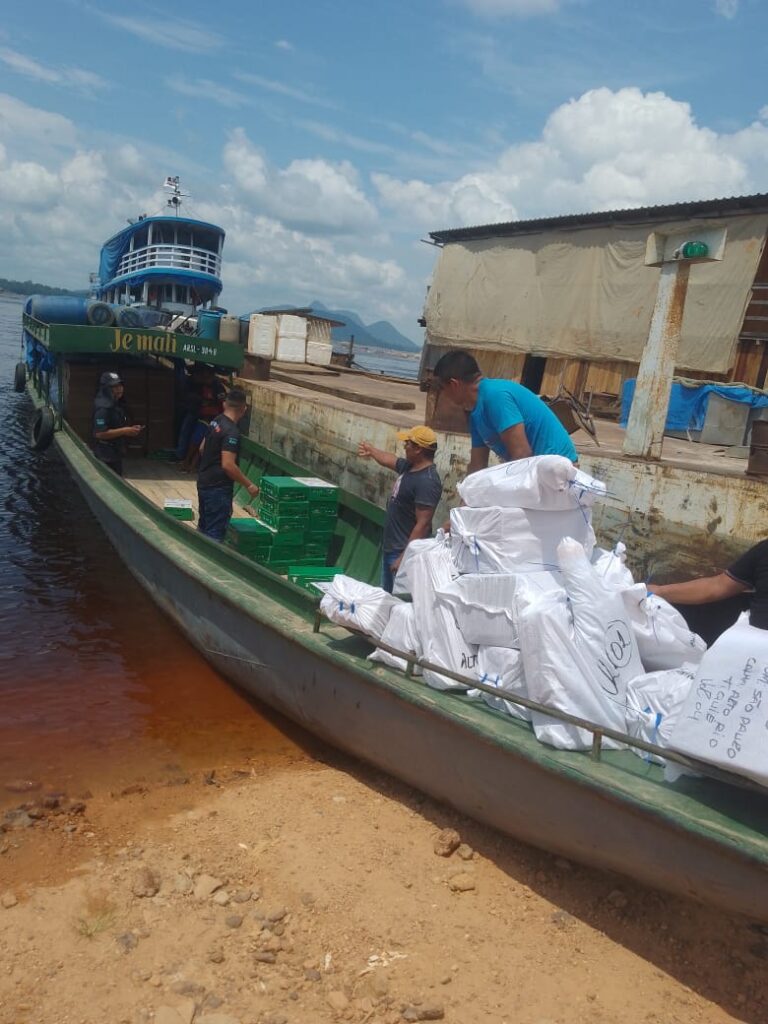
No extremo oeste do Amazonas, a 850 quilômetros de Manaus, São Gabriel da Cachoeira é o município com maior diversidade étnica do país, com 23 povos indígenas. E é de lá que chegam informações alarmantes. De acordo com Melvino Fontes Baniwa, coordenador do departamento de Educação da Federação das Organizações Indígenas do Rio Negro (Foirn), a evasão de alunos indígenas é uma realidade após a pandemia. Por conta do deslocamento que muitos alunos tinham de fazer para ir às escolas, muitos acabaram se evadindo, mudando de endereço e de comunidade. Mas para o coordenador o problema vai além.
“Na verdade, são três pontos: A falta de transporte escolar – aqui a grande maioria vem de barco –, de material didático e de merenda. Todos esses aspectos fizeram com que os alunos desistissem”, destaca o coordenador. “As escolas estão abandonadas, os professores e os alunos não têm material, nem mesmo caneta, lápis ou caderno. Tudo isso acabou influenciando. Aí quando a pandemia chegou, completou essa defasagem.”
No município amazonense, há 235 escolas municipais indígenas e 12 escolas indígenas do Estado. Melvino relata que, na falta do transporte escolar, os alunos usam o transporte familiar – que não é adequado para ir à escola. “Tem alunos que vão, por exemplo, a remo. A gente tem que pensar no bem-estar e no bem-viver dos povos indígenas, principalmente das crianças, que hoje estão correndo risco”, critica Melvino.
Entramos em contato com a Secretaria de Educação de São Gabriel da Cachoeira, mas o órgão não respondeu.
Falhas no ensino superior
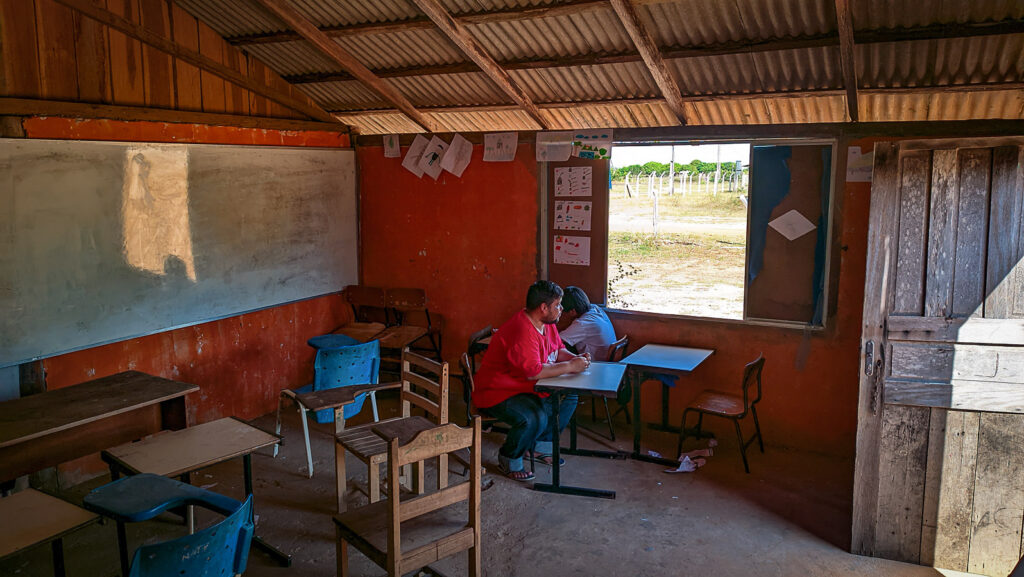
Se a educação básica (do ensino infantil ao médio) vai mal, a de nível superior poderia representar uma luz no fim do túnel. Com mais indígenas se formando em diferentes profissões, melhor será o atendimento das necessidades desses povos. Esse movimento já foi iniciado, porém segue a passos lentos. De acordo com dados do Instituto Nacional de Estudos e Pesquisas Educacionais (Inep), dos 8,9 milhões de estudantes na educação superior em 2022, 46.252 são indígenas, o que equivale a 0,5%. Mais da metade deles está na Amazônia. No entanto, a entrada nas faculdades e universidades não é o principal desafio a ser superado.
A liderança e estudante de Licenciatura Intercultural Indígena, Luene Karipuna, mora no Município de Oiapoque, no Amapá, está na fase final da graduação na Universidade Federal do Amapá (Unifap), e detalha como foi o caminho até chegar a esse estágio da formação.
“Comecei a morar no Município de Oiapoque em 2019, um ano antes da pandemia estourar. Foi na cidade que entendi que não basta dar oportunidade de entrar na universidade. É preciso que haja política para que o aluno permaneça nela”, inicia Luene Karipuna. Ela lembra que observou que muitos colegas só chamavam os alunos indígenas para expor artesanato. “Todas as vezes que a gente tentou entrar nos espaços de discussão científica, fomos tratados com preconceito, com olhares estranhos. Acredito que isso tem sido um dos aspectos mais importantes dentro da universidade, o de desconstruir esse tipo de narrativa sobre nós.”
A futura professora conta que, se for levar em consideração a vida na cidade, a bolsa permanência, que até 2022 era de 900 reais, não cobria nem a metade dos custos da vida estudantil. Só para visitar sua aldeia, ela gastava em média 400 reais. Ou seja, apenas com a bolsa não conseguia ir para o seu território com frequência.
“Para chegar na minha comunidade, a gente vai via terrestre até um ponto que é a entrada da Terra Indígena Uaçá. E aí a gente pega mais ou menos 20, 30 minutos de voadeira para chegar na minha aldeia. A gente paga transporte de frete, temos que comprar combustível para descer o rio até chegar”, explica.
A liderança menciona que, na pandemia, muitos indígenas voltaram para as aldeias. Para não perder aulas, tentaram construir uma possibilidade de ensino remoto. Mas isso não funcionou para todo mundo, porque muitos dos seus colegas não tinham acesso à internet. O resultado foi a evasão de alunos, que foram para suas aldeias e não voltaram mais para os livros. Quem continuou ficou com o curso defasado.
“Nós atrasamos dois anos. Então já vão mais para seis ou sete anos que a gente está tentando concluir o nosso curso. Não teve assistência da universidade, a não ser alguns professores que se doaram mesmo para trabalhar com a gente. Foi um descaso, muitos alunos ficaram doentes psicologicamente”, relata a estudante.
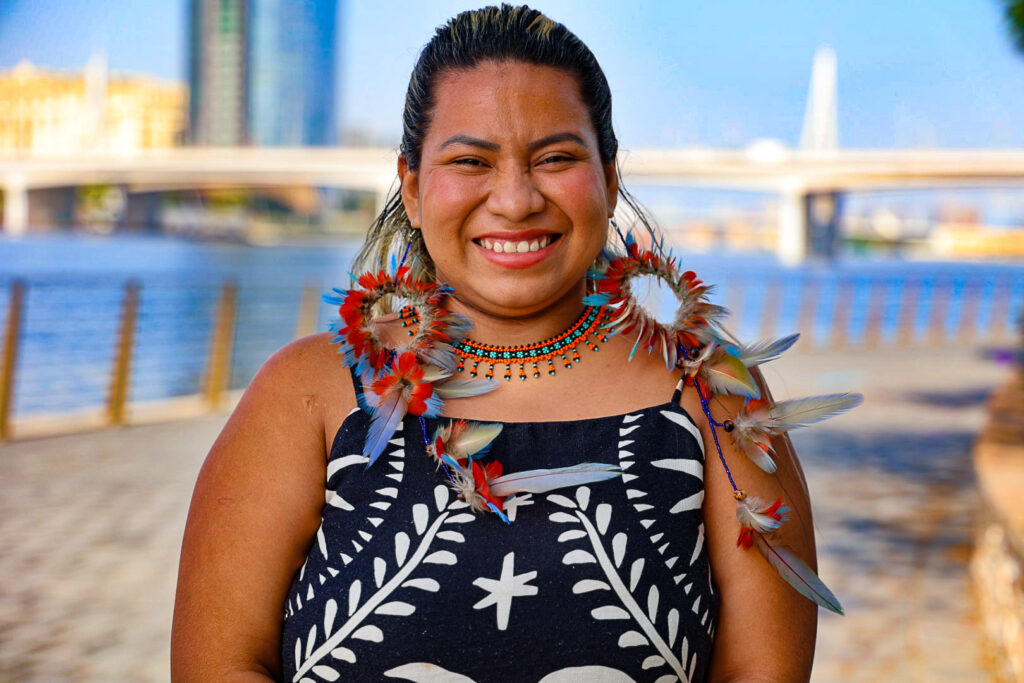
A acadêmica ressalta ainda que a universidade não é um espaço preparado para receber alunos indígenas. “Estamos em 2023 e o pensamento esbranquiçado ainda continua sendo a base de ensino para alunos indígenas”, denuncia. Ela afirma que essa metodologia é um segundo obstáculo a ser enfrentado, já que o primeiro é a inexistência de uma política que segure o aluno na instituição.
Procuramos a Unifap para entender o motivo de não conseguirem dar assistência aos alunos indígenas no câmpus do Oiapoque durante o período de pandemia, e se hoje há alguma política para que esses alunos consigam concluir o curso. Por meio da Assessoria de Comunicação da universidade, recebemos a resposta de que iam verificar a demanda, mas até o fechamento desta reportagem não houve resposta.
Falta de comunicação
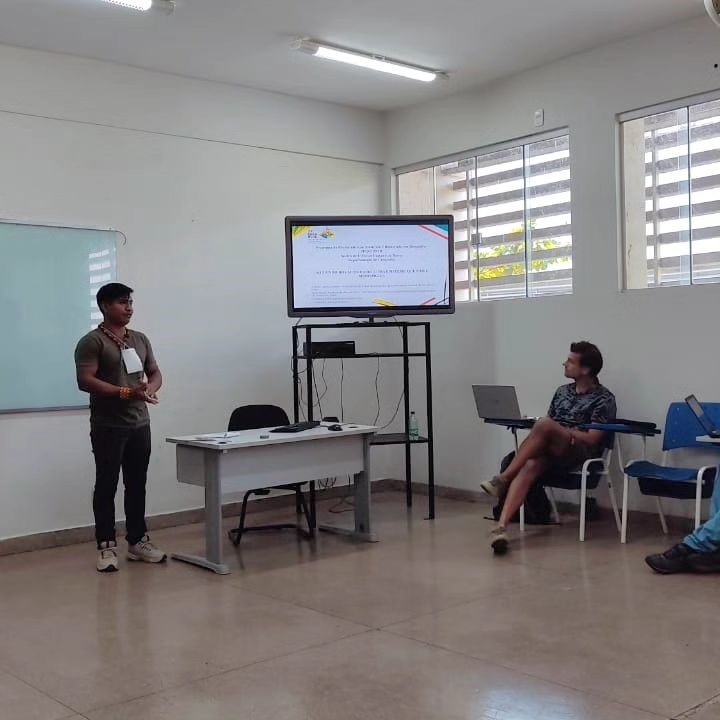
A língua materna é outro ponto sensível no ensino superior indígena. Com a possibilidade de entrada na graduação, muitos indígenas saem de suas aldeias e, por não terem o domínio da língua portuguesa, acabam correndo risco de serem explorados. É o que Luene relata, em detalhes, sobre o que ocorreu com uma colega:
“Tinha um estudante indígena na Unifap muito caladinha. Naquela época, em 2019, todo mundo fazia vaquinha para poder lanchar, ainda não tínhamos bolsa-permanência. Certo dia, essa estudante desmaiou no corredor da sala porque não tinha o que comer. Eu sentei do lado dela, que estava chorando muito. Estava super fraquinha, já tinha três dias que não comia, só café da manhã. Ela me disse que morava de aluguel com a irmã num quarto bem pequenininho, e a dona daquele lugar cobrava 600 reais de cada uma delas. Então, elas preferiam não ter o que comer e ter onde dormir. Ainda dividiam o dinheiro dos artesanatos para sustentar os filhos. Elas estavam a ponto de desistir do curso. Não só elas, mas outros que não falam bem português e querem acessar a universidade têm esse grande obstáculo.”
Do Estado do Amazonas, Estélio Munduruku é estudante da pós-graduação em Geografia na Universidade Federal de Rondônia. Em sua caminhada acadêmica, ele menciona os desafios à saúde mental. “Nossa principal dificuldade é a assistência psicológica, pois no início é um baque bem difícil para quem vem das aldeias. Eu vim do Kwatá-Laranjal, município de Borba. Isso se dá porque a gente tem um ensino diferente na educação básica. Como a educação superior é muito exigente, requer muita produção. A gente acaba com a mente sugada, fora as questões socioeconômicas e culturais que a gente tem”, pontua Estélio, que hoje está finalizando a pós-graduação.
Educação específica e diferenciada
Em dezembro de 1996, por meio da Lei nº 9.394, que estabelece as Diretrizes e Bases para a Educação Brasileira (LDB), outro importante passo foi dado com a determinação como norma legal do direito indígena à educação diferenciada. Mas apesar dos avanços, ainda há muito a ser feito. É o que destaca a liderança André Baniwa, escritor, político e um dos maiores ativistas da educação indígena.
“No nível da educação básica, é como se pintassem só a cara para dizer que é indígena, mas por dentro não tem nada de diferente. E mesmo que tenha o Conselho Nacional de Educação Escolar Indígena, o conselho não consegue avançar nesse sentido”, pontua André Baniwa.
Dário Kopenawa destaca que a educação específica só existe no papel, mas na prática o Estado insiste em não reconhecer os modos de vida dos povos indígenas. “A escola específica tem na escrita, mas na prática é diferente, precisamos o sistema educacional específico indígena nacional. Esse ensino diferenciado ainda não chegou, a escola indígena ainda é um pensamento do Estado. Esse ensino diferente não está funcionando na Terra Yanomami”, relata o líder indígena.
Há 15 anos, os Yanomami fizeram o Projeto Político-Pedagógico (PPP) para atendimento de escolas específicas. Nele, Dário e demais pessoas engajadas nesse processo colocaram no papel como deveria ser uma escola Yanomami, desde o pensamento do seu povo, o modo de viver, até o que ensinar para os alunos. “Temos o histórico dos animais, da floresta, da terra Yanomami, do nosso criador de Omama. Isso a gente quer ensinar para os nossos parentes, isso é ensino específico que ainda não é reconhecido pelo Estado”, cobra Dário.
Aldira Akay, do povo Munduruku, conta que o ensino da língua indígena foi reduzido de 100 horas para 10 horas por mês em sua escola, e pontua que isso acabou afastando as crianças da cultura indígena. “É um absurdo. Com essa perda, a gente vem percebendo que as nossas crianças estão cada vez mais perdendo a nossa língua, o cântico e outras histórias que estão envolvidas com a nossa cultura”, afirma Aldira, que dá aula para alunos do 1º e 2º anos do ensino fundamental.
Em relação à “pedagogia da floresta”, termo usado em muitos eventos de educação para se referir ao ensino indígena, o líder indígena e ativista da educação André Baniwa destaca que isso é mais uma tentativa dos não-indígenas de generalizar, que não deixa de excluir a especificidade da educação escolar indígena.
“Esse termo foi feito pelos pesquisadores não-indígenas. Essa pedagogia da floresta cai na mesma política da era dos missionários de querer criar uma língua única para todos os brasileiros. Eu acho muito perigoso quando se cria um conceito genérico que mata a especificidade das coisas. O que acho que deveria acontecer é conectar essas pedagogias. Seria muito mais importante do que criar um conceito que generalize tudo isso”, argumenta André Baniwa, líder da região do Alto Rio Negro.
* Pauta selecionada pelo 5º Edital de Jornalismo de Educação, da Jeduca e em parceria com a Fundação Itaú.
. Agência Amazônia Real, leia esta matéria diretamente na fonte e acesse outras importantes produções: https://amazoniareal.com.br/especiais/ensino-indigena-pos-covid/
Puxando a REDE IPOL:
. Instituto Socioambiental – ISA: Ariene Susui: com a caneta na mão e em espaços de poder! https://www.socioambiental.org/index.php/noticias-socioambientais/ariene-susui-com-caneta-na-mao-e-em-espacos-de-poder
. Siga Ariene Susui nas redes sociais:
https://twitter.com/ArieneSusui
https://www.instagram.com/ariene_susui/?hl=en
Idiomas do tupi-guarani avançaram pela América do Sul em escala épica
Site Acessa.com
SÃO CARLOS, SP (FOLHAPRESS) – Os idiomas da família linguística tupi-guarani, que se expandiram pela América do Sul numa escala épica antes da chegada dos europeus, provavelmente surgiram há cerca de 2.500 anos, na região onde hoje fica Santarém, no Pará. A estimativa vem de um novo estudo sobre a “genealogia” dessas línguas, que mapeou seu avanço no tempo e no espaço e o parentesco entre elas.
Diferentemente do que muita gente pensa, o termo “tupi-guarani” não designa um único idioma, mas um grupo que engloba cerca de 40 línguas ainda faladas hoje e pelo menos mais uma dezena de idiomas extintos. Antes da invasão europeia, falantes dessas línguas tinham se expandido num raio de 4.000 km dentro da América do Sul.
Essas comunidades podiam ser encontradas da foz do rio da Prata, entre o Uruguai e a Argentina, até a atual Guiana Francesa. Segundo Gerardi, de modo geral, a semelhança entre os idiomas da família, apesar dessa distribuição geográfica tão ampla, era comparável à que existe entre os idiomas da família românica (o que inclui o português e seus “primos” –espanhol, italiano, francês, romeno e várias outras línguas com menos falantes).
“Você percebe que muitos aspectos da origem comum se mantiveram em diversas línguas que estão separadas há muito tempo. Há relatos sobre uma etnia do Maranhão que conseguia entender em parte o que falavam indígenas da fronteira do Amapá com a Guiana Francesa, por exemplo”, diz ele.
Apesar desse relativo conservadorismo, é inevitável que, com o passar dos séculos, as línguas descendentes de um ancestral comum comecem a divergir. Em parte, isso acontece pelo contato com idiomas de outras famílias linguísticas.
“No processo de expansão, isso certamente aconteceu com frequência, porque cada vez mais a gente tem percebido que não existiam vazios de população no Brasil antes da chegada dos europeus. Ou seja, por onde passaram, os falantes da família tupi-guarani foram encontrando outros indígenas”, afirma o pesquisador. Assim, ocorrem empréstimos –como “futebol”, palavra de origem inglesa, no nosso idioma.
Há vários outros processos de mudança linguística, como as transformações do som das palavras ao longo do tempo. É por isso que hoje dizemos “eu” e os espanhóis, “yo” — e não “ego”, como os antigos romanos.
Esse último detalhe é a chave da metodologia utilizada pelos pesquisadores. Eles montaram uma grande lista com centenas de possíveis cognatos, isto é, palavras que, apesar dessas mutações de som, muito provavelmente descendem de uma mesma palavra ancestral comum na origem da família tupi-guarani. O processo de sobrevivência ou desaparecimento desses cognatos ao longo das diferentes línguas da família é usado para tentar inferir a árvore genealógica da família como um todo.
Por exemplo, a palavra para “morcego” em tupinambá (também conhecido como tupi antigo) é “anira”; em wayampi, “anila”. Mas em guarani o termo é “mopi”; em kaiowá, “mbopiri” –o que indica uma “mutação”, semelhante à do DNA, na divergência entre o ancestral dos dois pares de línguas.
Após testar várias possibilidades, os pesquisadores acabaram optando por montar a árvore genealógica dos idiomas do grupo usando o que se costuma chamar de “relógio relaxado” –uma espécie de “tique-taque” que mede a taxa de transformações das línguas ao longo do tempo.
Mais uma vez, trata-se de uma ideia emprestada da biologia evolutiva. O “relógio relaxado” considera que os diferentes ramos da árvore podem evoluir em ritmos muito diferentes, explica Tiago Tresoldi, coautor do estudo ligado à Universidade de Uppsala (Suécia). “É a expressão de uma família que teve uma rapidíssima expansão em alguns ramos, mas que ainda é relativamente muito jovem e menos diferenciada”, diz ele.
A análise produziu uma árvore com três grandes subdivisões e um processo de expansão que só decola mesmo séculos depois da origem da família, a partir de 1.700 anos atrás. O aparente berço do grupo, entre os cursos altos dos rios Tapajós e Xingu e perto de Santarém, é interessante porque a região acabaria sendo palco da formação de grandes aldeias e estilos requintados de arte em cerâmica séculos depois. As coisas estariam ligadas de alguma forma?
Segundo Gerardi, ainda é cedo para dizer o que exatamente estaria acontecendo ali para impulsionar a expansão tupi-guarani, mas já se sabe que a região abrigava uma confluência de diferentes povos com papel importante na pré-história amazônica. Uma hipótese é que os membros da família linguística tenham combinado a criação de um pacote agrícola ideal para o cultivo de plantas de floresta tropical com uma ideologia guerreira que facilitou seu confronto com outras etnias ao longo dos séculos.
Leia diretamente na fonte: https://www.acessa.com/noticias/2023/12/189653-idiomas-do-tupi-guarani-avancaram-pela-america-do-sul-em-escala-epica.html
Puxando a Rede com IPOL:
. Acesse o artigo do PLoS ONE journal: Lexical phylogenetics of the Tupí-Guaraní family: Language, archaeology, and the problem of chronology
https://journals.plos.org/plosone/article?id=10.1371/journal.pone.0272226
. Avanço épico dos idiomas Tupi-Guarani pela América do Sul
https://revistacenarium.com.br/avanco-epico-dos-idiomas-tupi-guarani-pela-america-do-sul/
. Siga o pesquisador Fabricio Ferraz Gerardi: https://twitter.com/fabricioicirbaf. O autor repostou uma mensagem da pesquisador Tábita Hünemeier (twitter: @hunemeier_t) : “Check out our review of the complex dynamics surrounding the Tupi expansion, one of the greatest demographic movements in the late Holocene of America and arguably one of the least studied / Confira nossa análise da complexa dinâmica em torno da expansão Tupi, um dos maiores movimentos demográficos do final do Holoceno da América e, sem dúvida, um dos menos estudados.”
Acesse o artigo em https://onlinelibrary.wiley.com/doi/10.1002/ajpa.24876
. Publicação em LA NACION – La milenaria trayectoria del idioma guaraní
Congreso Internacional “LLAMADO CONTRA LA DISCRIMINACIÓN LINGÜÍSTICA DESDE EL PERÚ EN EL MARCO DEL DECENIO INTERNACIONAL DE LAS LENGUAS INDÍGENAS EN IBEROAMÉRICA”
O Instituto de Pesquisa de Lingüística Aplicada (CILA) da Faculdade de Letras e Ciências Humanas da Universidade Nacional Mayor de San Marcos (UNMSM), juntamente com a Universidade de Antioquia (Colômbia), a Universidade de Jaén (Espanha), o Instituto Pedagógico Instituto de Caracas (Venezuela), o Instituto de Estudos da Linguagem da Universidade Estadual Campinas (Brasil), bem como instituições internacionais, a Diretoria de Línguas do Ministério da Cultura do Peru (Mincul), o Centro de Pesquisa Judicial do O Poder Judiciário do Peru (CIJ), os Serviços de Comunicação Intercultural (Servindi) e a Universidade Nacional do Altiplano (UAP), como instituições nacionais, apelam à comunidade universitária e aos interessados na luta contra a discriminação linguística (pesquisadores, professores, graduados , estudantes, usuários) para participar do Congresso Internacional “CHAMADA CONTRA A DISCRIMINAÇÃO LINGUÍSTICA DO PERU NO ÂMBITO DA DÉCADA INTERNACIONAL DE LÍNGUAS INDÍGENAS NA IBERO AMÉRICA”, evento que será realizado semipresencialmente na quarta-feira 20, quarta-feira 13, Quinta-feira, 14 e sexta-feira, 15 de dezembro.
No âmbito da DÉCADA INTERNACIONAL DAS LÍNGUAS INDÍGENAS NA IBERO-AMÉRICA, investigadores das disciplinas de Linguística e de diversas disciplinas preocupam-se com o desenvolvimento linguístico, razão pela qual se reúnem neste Congresso Internacional para debater e reflectir sobre o uso, a sobrevivência e a revitalização das línguas face à discriminação linguística.
Neste século 21 estima-se que mais de 3.000 línguas irão desaparecer. No Peru existem mais de 40 línguas nativas, que estão em perigo de extinção, incluindo Cocama, Taushiro e Jacaru. O Instituto de Pesquisa de Linguística Aplicada (CILA) incentiva o uso, a revitalização e a promoção das línguas nativas, uma vez que seus falantes têm todos os direitos linguísticos dos demais falantes para sua sobrevivência e desenvolvimento social e de sua comunidade, que luta contra a discriminação linguística e racial que existe no mundo. Por isso é necessário realizar um congresso que convoque a luta pelas línguas indígenas no Peru, na América Latina e no mundo.
Link com Google Meet:
https://meet.google.com/xjv-dfvm-pbm
Rosangela Morello, coordenadora do Instituto de Investigação e Desenvolvimento em Política Linguística (IPOL), participará no dia 13 de dezembro (quarta-feira) com a apresentação “A necessidade de políticas de reparação à repressão e ao preconceito linguístico” com a moderação de Andrés Napuri.
O Brasil, país bilíngue desde 2005 (português/Língua Brasileira de Sinais – LIBRAS), é muito rico em diversidade linguística. Com cerca de 300 línguas, está entre os oito países com maior número de línguas no mundo, no entanto o Estado Brasileiro constituiu-se como Estado Nacional, tendo estabelecido uma equivalência entre o conceito de nação e a unidade da língua portuguesa. Nesse sentido, proibiu e exterminou línguas faladas por centenas de milhares de indígenas, africanos, europeus, imigrantes e surdos. Esse processo conduziu à exclusão da cidadania e do acesso a políticas públicas de significativa parcela da população brasileira.
Esse fato, por muitos desconhecidos, justifica a Nota Técnica Conscientização do direito humano à diversidade linguística e formas de compensação pela história de repressão linguística no Brasil desde o início do processo de colonização, assinada pelo IPOL Instituto de Investigação e Desenvolvimento em Políticas Linguísticas, Defensoria Pública da União (DPU) e Universidade de Brasília (UNB) e publicada em 14 de setembro de 2021. Com o objetivo promover a conscientização e a promoção do direito humano à diversidade linguística para todos os brasileiros de todas as línguas, a Nota estabelece uma nova frente de reivindicação dos direitos linguísticos no Brasil na medida em que insta o Estado, em todas as suas instâncias representativas e instituições vinculadas, a promover políticas de reparação ao extermínio e repressão históricos de línguas em território brasileiro. Na exposição, explicitaremos brevemente o contexto de elaboração desta nota, alguns acontecimentos históricos que a justificam e exploraremos suas potencialidades como instrumento de reivindicação de direitos linguísticos e de reconhecimento e promoção das línguas e de seus falantes.
Saiba mais puxando a rede do IPOL!
. Leia a NOTA TÉCNICA No 8 – DPGU/DNDH – Conscientização do direito humano à diversidade linguística e formas de compensação pela história de repressão linguística no Brasil desde o início do processo de colonização
. Brasileiro fala português: Monolingüismo e Preconceito Lingüístico, por Gilvan Müller de Oliveira https://unesdoc.unesco.org/ark:/48223/pf0000161167
Ministra dos Povos Indígenas formaliza adesão do Brasil ao Instituto Iberoamericano de Línguas Indígenas (IIALI)
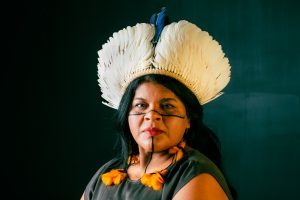 Na última terça-feira, dia 21 de novembro de 2023, a ministra dos Povos Indígenas, Sonia Guajajara, assinou um ofício solicitando à Agência Brasileira de Cooperação (ABC) a adesão do Brasil ao Instituto Iberoamericano de Línguas Indígenas (IIbeLI). A formalização deste pedido visa preservar e revitalizar o patrimônio linguístico e cultural da América Latina e do Caribe, conforme aprovado na Cúpula Iberoamericana de fevereiro de 2022.
Na última terça-feira, dia 21 de novembro de 2023, a ministra dos Povos Indígenas, Sonia Guajajara, assinou um ofício solicitando à Agência Brasileira de Cooperação (ABC) a adesão do Brasil ao Instituto Iberoamericano de Línguas Indígenas (IIbeLI). A formalização deste pedido visa preservar e revitalizar o patrimônio linguístico e cultural da América Latina e do Caribe, conforme aprovado na Cúpula Iberoamericana de fevereiro de 2022.
A reunião da Organização Iberoamericana, agendada para o dia 27 de novembro, será palco para a ABC formalizar a adesão brasileira ao IIbeLI. Esta é uma iniciativa crucial para a preservação das cerca de 550 línguas na região, sendo um terço delas ameaçadas de extinção, é uma entrega concreta do Ministério dos Povos Indígenas durante sua liderança na Presidência Pro-tempore do Mercosul.
A adesão ao IIbeLI é estratégica para o reposicionamento do Brasil no cenário regional, destacando o protagonismo indígena. Durante a Reunião de Autoridades sobre Povos Indígenas do Mercosul (RAPIM), realizada em Brasília em 16 de novembro, a decisão brasileira já foi comunicada ao Vice-Presidente da Bolívia, David Choquehuanca, país sede do Instituto e um de seus maiores apoiadores.
Essa iniciativa ganha ainda mais relevância no contexto da Década Internacional das Línguas Indígenas da UNESCO, à medida que os países são chamados à ação para apoiar, promover e revitalizar as línguas indígenas. Além disso, a adesão fortalecerá a parceria com o FILAC (Fundo para o Desenvolvimento dos Povos Indígenas da América Latina e Caribe), possibilitando ações conjuntas em eventos como o Fórum Permanente sobre Questões Indígenas da ONU e a participação indígena na COP30 do Clima, em 2025, em Belém.
A medida alinha-se à intenção do presidente Lula de fortalecer a integração regional, especialmente no âmbito do Tratado de Cooperação Amazônica (TCA), considerando a concentração significativa das línguas indígenas na região.
Por fim, a adesão ao Instituto Iberamericano de Línguas Indígenas vem ao encontro das ações do Ministério dos Povos Indígenas que, por meio de seu Departamento de Línguas e Memórias Indígenas, chefiado pelo professor Eliel Benites. O Departamento apresentou este ano, no âmbito da RAPIM, o Plano de Ação para a Década Internacional das Línguas Indígenas no Brasil, o qual apresenta em detalhes os princípios, objetivos e, principalmente, as ações conduzidas à frente das políticas linguísticas no Brasil, tudo formulado com protagonismo indígena e intensos diálogos com instituições governamentais e não-governamentais especializadas na temática.
IIALI – O que é?
O Instituto Ibero-Americano de Línguas Indígenas é uma iniciativa para revitalizar as línguas indígenas
O Instituto Ibero-Americano de Línguas Indígenas (IIALI) tem sua origem em uma decisão da Cúpula Ibero-Americana de Chefes de Estado e de Governo, realizada em Montevidéu e Antígua-Guatemala em 2006 e 2018, respectivamente. Na XXVII Cúpula Ibero-Americana, realizada em Andorra em 2021, o instituto foi aprovado como uma iniciativa ibero-americana para enfrentar as ameaças às línguas indígenas, especialmente as ameaçadas de extinção, bem como para promover seu uso, revitalizar, fomentar e desenvolver as mesmas.
Esta iniciativa busca aumentar a consciência da situação das línguas indígenas e dos direitos culturais e linguísticos dos povos indígenas; promover a transmissão, uso, aprendizagem e revitalização das línguas indígenas; prestar assistência técnica na formulação e implementação de políticas linguísticas e culturais para os povos indígenas; e facilitar a tomada de decisão informada sobre o uso e vitalidade das línguas indígenas.
O instituto adota, entre outros, os princípios da Convenção 169 da OIT, a Declaração da ONU sobre os Direitos dos Povos Indígenas e a Declaração Los Pinos-Chapoltepek, adotada no evento de alto nível convocado pela UNESCO e pelo Governo do México em 2020, sob o lema “Nada sem nós”, que reconhece a importância das línguas indígenas para a coesão e inclusão social, direitos culturais, saúde e justiça.
A responsabilidade pela criação do Instituto foi confiada na XXVI Cúpula Ibero-Americana de Chefes de Estado e de Governo à Organização de Estados Ibero-Americanos para a Ciência e a Cultura (OEI), à Secretaria-Geral Ibero-Americana (SEGIB) e ao Fundo para o Desenvolvimento dos Povos Indígenas da América Latina e do Caribe (FILAC).
El IIALI tiene como objetivo general fomentar el uso, la conservación y el desarrollo de las lenguas indígenas habladas en América Latina y el Caribe, apoyando a las sociedades indígenas y a los Estados en el ejercicio de los derechos culturales y lingüísticos, objetivo que se logrará con la creación de un Instituto Iberoamericano de Lenguas Indígenas. Para ello, se busca:
- Concienciar sobre sobre la situación de las lenguas indígenas y los derechos culturales y lingüísticos de los Pueblos Indígenas, así como lograr:
- Que la sociedad global considere al IIALI como la piedra angular del Decenio Internacional de las Lenguas Indígenas en América Latina y el Caribe.
- Que la sociedad latinoamericana muestre mayor conocimiento y consciencia sobre la situación de vulnerabilidad y los riesgos que amenazan a los idiomas indígenas.
- Fomentar la transición, uso, aprendizaje y revitalización de los idiomas indígenas, a través de ello se busca:
- Que se retome la transmisión intergeneracional de los idiomas indígenas por las familias indígenas.
- Se cree un sistema de apoyos para iniciativas endógenas de recuperación y revitalización de los idiomas originarios, en áreas rurales y urbanas.
- Sean aplicadas iniciativas gubernamentales en favor de las lenguas indígenas en consulta con las organizaciones indígenas y las comunidades de hablantes.
- Formular e implementar políticas lingüísticas y culturales para y con los pueblos indígenas, también es parte de los objetivos del IIALI, para ello se pretende:
- Que sean fortalecidos técnicamente las Secretarías, institutos o academias oficiales de idiomas originarios y políticas lingüísticas y con actuación en los niveles macro, meso y micro.
- Tener un Laboratorio Latinoamericano de Lenguas Indígenas en funcionamiento, con bases de datos cuantitativos y cualitativos sobre la situación de los idiomas indígenas. (https://www.iiali.org/objetivos-del-iiali/)
Saiba mais puxando. rede IPOL:
. A criação do Instituto: http://ipol.org.br/tag/instituto-ibero-americano-de-linguas-indigenas-iiali/
. A criação do Instituto Ibero-Americano de Línguas Indígenas (IIALI): https://www.segib.org/pt-br/programa/iniciativa-instituto-iberoamericano-de-lenguas-indigenas-iiali/

